MISSISSIPPIAN





It’s been one hell of a year. Let’s review.







It’s been one hell of a year. Let’s review.

It had been two months since the announcement of Jimmie “Jay” Lee’s murder when Jose Luis Reyes Jr. walked off the stage at The Lyric. He had just finished his performance at the first Code Pink drag show of the school year. His body was buzzing from the adrenaline and the sour apple buzzball he drank before going on.
He looked around at the other performers hurriedly getting dressed and touching up their makeup and couldn’t help but feel something was missing: Jay Lee.
On a normal Code Pink night, they would have carpooled together. That night would have been Reyes’ turn to drive and Lee’s to drink as much as he wanted, his mind at ease knowing he was safe with a friend. On this night, Reyes had gotten dressed without numerous and slightly irritating facetime calls from Lee asking him, “What time are you leaving?” “What time do you go on?” He drove by himself.
“Essentially Code Pink was our night where we both indulged in the liberation of drag,” Reyes said. “We’re each other’s biggest fans, so not being able to see him shake ass or having him cheer me on from the side of the stage feels so different and almost discouraging. He belongs on that stage more than anyone. He is a true entertainer.”
Reyes undressed from his drag outfit and left backstage. He maneuvered his way through the crowd heading toward the front of the building where he saw Lee. It wasn’t him really, but the picture of him that was being used across various media outlets with the words “Ole Miss Student Murdered” above it.
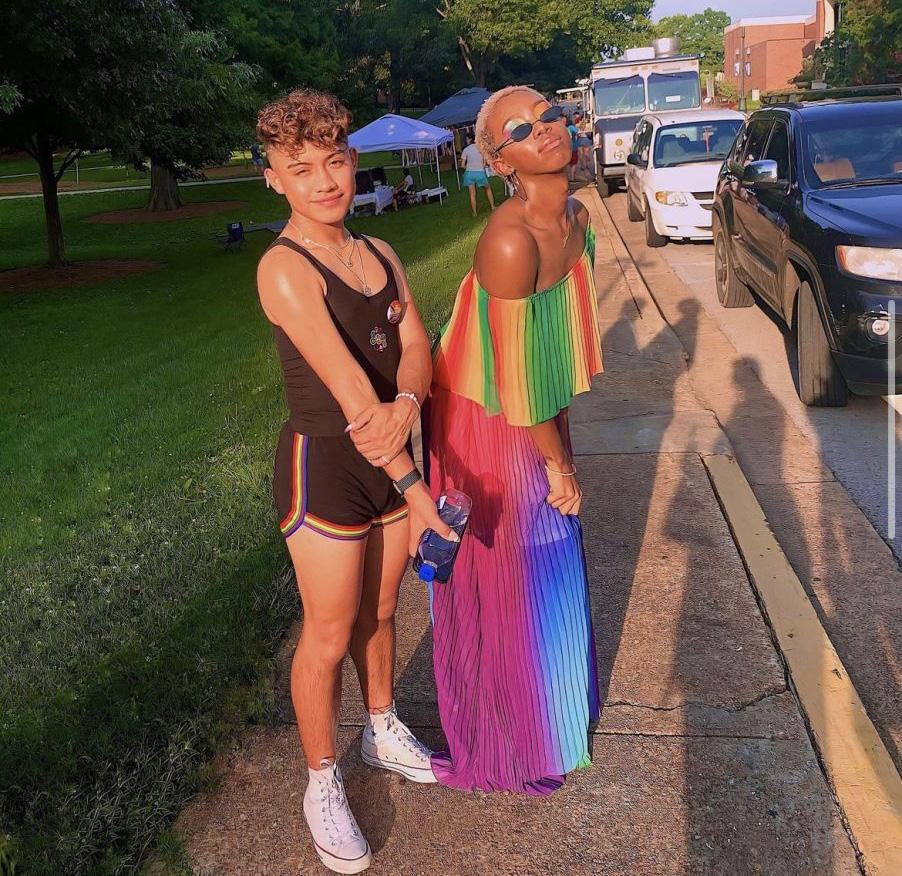
Braylyn Johnson, a friend of Reyes and Lee, stood by the picture as she shared who Lee was and accepted donations for the Lee family. Reyes said Braylyn has kept him grounded through the ordeal.
“Our relationship has definitely gotten stronger,” Johnson said. “We were mutual friends through Jay Lee, and this experience has only made us closer I think. It’s super sad how tragic events can bring people together.”
Growing up in rural Potts Camp, Miss.,, Reyes witnessed how everyone around him treated the only openly gay person in school, and this caused him to keep his identity a secret from not only his friends but also his family.
“I felt like I had to hide myself. I grew up in a Mexican household with traditional beliefs,” Reyes said. “Not only that but I was raised in a very country, hick town around very racist and homophobic people.”
When he got to Ole Miss he was nervous and excited. He was about to step into this new version of himself he had been envisioning since eighth grade. However,
things had gone differently than planned. During his freshman year, the Coronavirus outbreak caused the university to move classes online.
When students were allowed to return to campus, new rules and regulations made it difficult for Reyes to meet more people. He went home every weekend because he missed his family so much and would leave his dorm only for food and to see his two childhood friends who also came to Ole Miss.
Then he encountered Jimmie “Jay” Lee. They met at an Ariana Grande concert in Memphis and discovered their shared love for music and makeup and discovered they were both social work majors.
“We connected instantly, and of course he asked me to take his picture,” said Reyes. “It’s been a while since he’s had me do that. I miss being his little photographer.”
Over the next two years, they spent a lot of time together during late-night drives, spontaneous road trips, their first college football game, pool-hopping around Oxford and Reyes’ first Oxford Pride.
One of his fondest memories is Lee going on stage during Oxford Pride and performing.
Reyes remembered being surprised and a little uneasy at his friend’s sudden impulsiveness, but seeing the way Lee fearlessly strutted down the runway and enticed the crowd, Reyes couldn’t help but cheer him on.
“He is so carefree and confident,” said Reyes. “He definitely inspires me and is my motivation to put myself out there.”
When Reyes received the news that Lee was missing, on Friday, July 8, he was at home visiting his family for the weekend. Lee’s sister, who had been trying to reach him all day, direct messaged Reyes to ask if he had heard from her brother because she and her family were unable to reach him. Lee regularly spoke with his family, so it was out of the ordinary for him to not answer their calls.
“After hearing what she knew, I immediately realized this was completely unlike Jay Lee,” Reyes said. “My calls were
failing and my messages were not going through. It was at this moment that I made the decision to leave my hometown and drive to Oxford to check on him personally.”
Reyes, along with his parents, made the 45-minute drive to Campus Walk, where Lee was residing for the summer. Upon arriving, he saw that Lee’s car was not parked there. He proceeded to knock on the door only to be met with the sound
amount of support and justice as someone who may have more favorable features,” Reyes said. “Not only that, but the police have also proven their lack of knowledge and empathy regarding the LGBTQIA+ community. I hope moving forward they are able to educate and involve themselves more.”
Reyes tried to remain optimistic. Then, on July 22, the police announced Sheldon Timothy Herrington Jr. was
been a leader during uncertain times,” Johnson said. “Jose is more outgoing, loud, and outspoken. He’s reminded me so much of Jay Lee since he has been gone.”
Reyes, along with friends of Lee, allies and members of the LGBTQIA+ community, formed a group called JusticeforJayLee in which they keep Lee’s name alive.
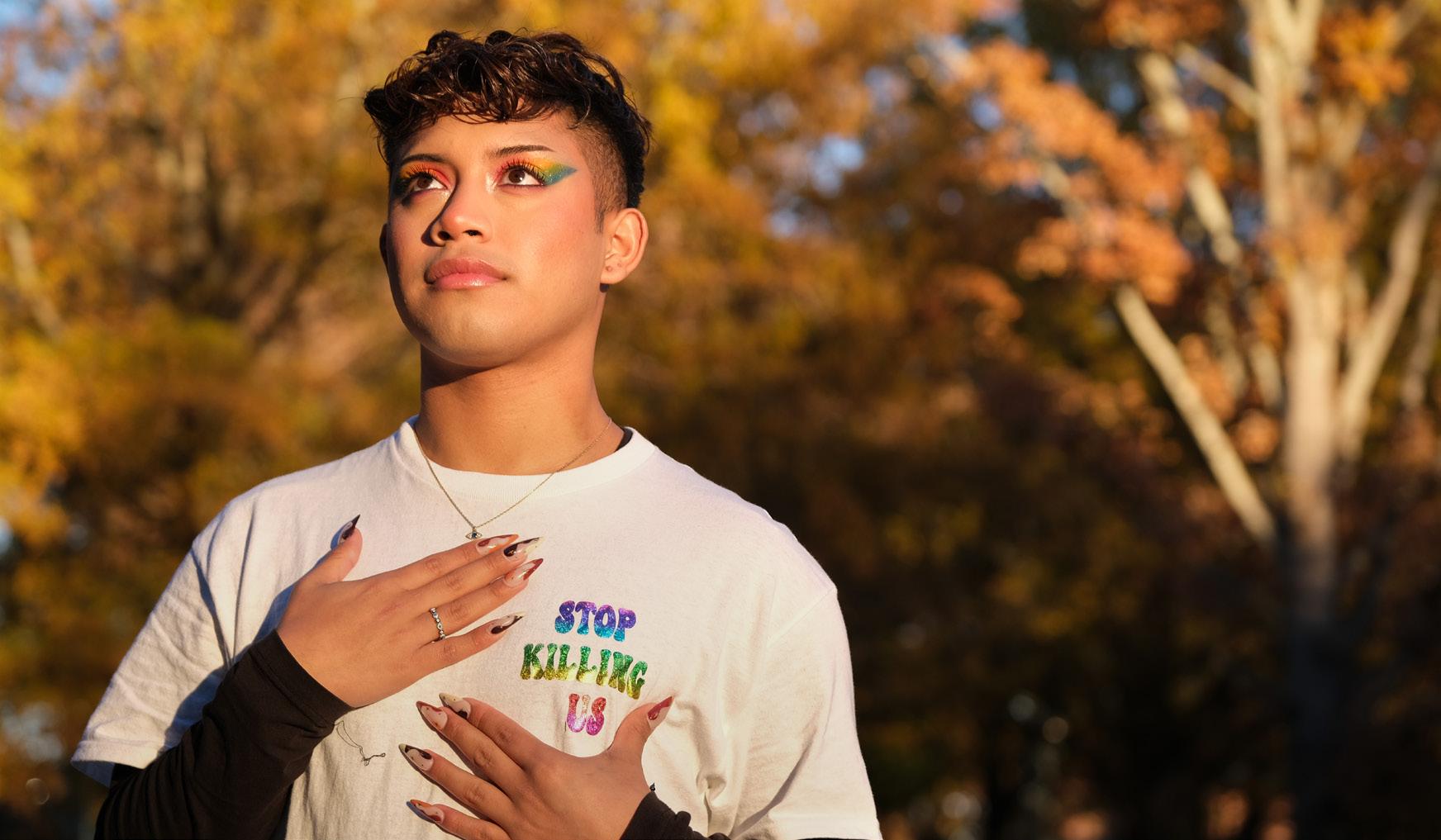
“I believe this made Jose stronger because he’s more aware of his reality now,” said Taylor Cummings, a social work major and a friend of Reyes’ for five years. “I can tell that emotionally he is disconnected, but he doesn’t try to show it. Jose is a different person, I will say, but he is being positive and doing his best not to let this eat him alive.”
Reyes has kept his promise to advocate for Lee by boldly speaking out about the injustices the community has experienced. He has helped organize benefits that raised money for Lee’s family, helped make a space in the Grove during tailgates for members of the community to feel welcome, attended social advocacy workshops and spoken at various LGBTQA+ events in Jackson, Lee’s hometown.
“There are many adjectives to describe Jose’s unique personality, but the one I will choose is carefree,” said Anthony Marion Bryson II, who has been a friend of Reyes for 10 years.
“Watching him become someone so willing to show every fact of themselves no matter the scrutiny or objectification that may come along with it has been an amazing experience.”
One of the things Reyes shared with Lee that he has tried to keep alive is performing at Code Pink. There was a second when he considered stopping his performances at the event. Lee was the reason he started drag, and it was difficult not having his No. 1 fan there.
of Lee’s dog, Lexi, barking.
“He doesn’t usually leave Lexi alone, so I knew something was up,” Reyes said.
By Sunday, the Oxford police announced Lee was missing and a search was being conducted. They had interrogated numerous people on his whereabouts, with Reyes being a frequent contact.
The City of Oxford Police Department has handled similar missing-person cases, but there seemed to be a disconnect when it came to Lee, possibly due to the fact he was a feminine presenting male, according to Reyes.
“The police have done many efforts in handling Jay Lee’s disappearance, however, it has become more evident to me that because Jay Lee is an openly queer Black man, he may not be receiving the same
arrested for Lee’s murder.
“When the news came out that someone was arrested for Jay Lee’s murder, I was alone in my apartment. I had notifications on for the police so I was notified as soon as the press article was released,” Reyes said. “I was in complete shock. I couldn’t formulate any words or any thoughts. It was a total blackout moment.”
Something flipped in Reyes. While he was mourning his friend’s death, he knew he had to defend Lee. He knew that doing this could potentially put a target on his back for major scrutiny and homophobia, but he knew that if it was the other way around, Lee would be front and center loudly demanding justice for his friend.
“I have huge respect for how he has handled this situation and
“It’s difficult to perform without him, but I do try to utilize my mobility and confidence as an attempt to encourage others, the same way Jay Lee did for me,” Reyes said. “Additionally, I use it as a platform to bring light to queer issues and try to honor Jay Lee whenever I have the opportunity to do so.”
Reyes is in his last year at the University of Mississippi. Having to deal with grief while also staying academically motivated and being socially present has been difficult. He now has to navigate his way through a city he no longer sees as a safe haven for people like him. But because of Lee, Reyes has been able to persevere through this challenging time.
“There’s a saying, ‘What doesn’t kill you makes you stronger,’ and I think that this is what is happening to Jose,” Johnson said. “I think that as he’s processing a huge deal of grief he’s also using his strength to stand up and speak up during one of the biggest challenges of his life.”
In 2022, the University of Mississippi experienced record growth in the freshman class and outlined plans to accommodate that growth, however it remains to be seen whether housing will be adequate for students next year.
The university has a residency requirement for all freshman students, and the 2022-2023 freshman class is the biggest in the university’s history, totaling 4,480. Ole Miss’ enrollment has increased 5.1% since fall semester 2021, passing all other public universities in the state, each of which saw enrollment fall.
“Now our university has to manage the growth effectively, and university leaders are evaluating what’s needed to do that,” Eduardo Prieto, vice chancellor for enrollment management, said.
An increase in freshman students decreases the
number of beds available for upper-classmen on campus.
“If we have an increase in first-year students, we might have to look at more upperclass students to live in the (campus) apartments, Campus Walk and Northgate, and fewer upper-class students in the residential buildings,” Assistant Vice Chancellor for Student Affairs and Director of Student Housing John Yaun said.
Converting double rooms to triple rooms is another way the university plans to fill housing requirements for the freshman class. According to the Department of Student Housing, “In order to accommodate the university’s growing enrollment and meet the housing needs for all incoming freshman students, the large double rooms offered in Martin Hall, Stockard Hall, Residence Hall 2 and Residence Hall 3 will be reverted back to triple rooms, housing three students.”
Northgate and Campus Walk Apartments currently are the only apartments operated as university student housing.
There are other apartments not affiliated with the university that students can lease, but they may not be the most affordable.
With the growing enrollment, the university is racing to ensure that there is adequate housing for all students. One housing plan includes tearing down Kincannon Hall, which is unoccupied, and building three residential halls in its place. The three halls, designed to have 950 to 1,000 beds for students, would not be ready until fall 2026.
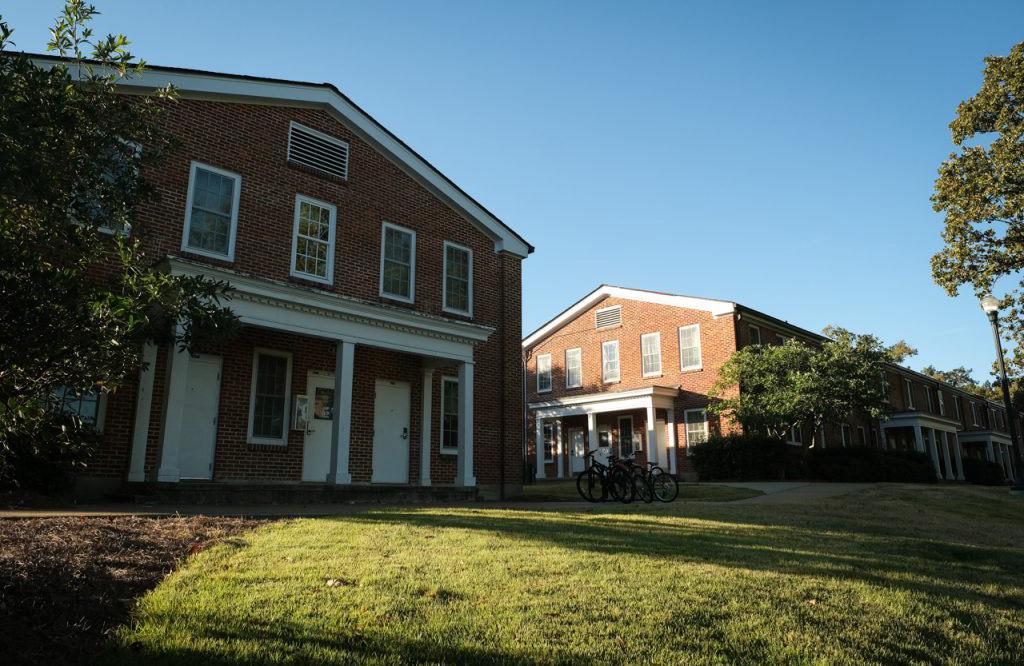
The university is also looking into developing a master lease.
“We are going to look at renting an entire apartment company off campus and have that available for upper-class students. We just submitted an RFP, which is the request process, so hopefully (there will be) 200 to 300 beds for next fall,” Yuan said.
Ensuring that there is enough housing for students is not the same as ensuring quality of housing, however.
“After living in Hefley (Hall) last year, the bar for cleanliness and overall quality
of the place was low, but after getting settled I feel like I found a secret gem,” said Zoe Keyes, a sophomore integrated marketing communications student and Northgate resident.
Hefley Hall is one of the six traditional halls at the university. When asked about what needs to improve, Keyes cited safety.
“When I moved in, some people’s doors did not lock and were just open to whoever
wanted to walk in. And while that is a simple maintenance mistake, it happened to multiple buildings,” Keyes said.
On the topic of living off campus, Keyes stated, “I honestly feel like there is not a lot of affordable housing in the Oxford area. When there is something affordable, it is either hard to get, or there is not a lot of information on the place.”
On June 24, 2022, the U.S. Supreme Court released its decision in Dobbs v. Jackson Women’s Health Organization, upholding the state’s abortion ban after 15 weeks of pregnancy.
In a 6-3 ruling, the court held that “the Constitution does not confer a right to abortion; Roe and Casey are overruled; and the authority to regulate abortion is returned to the people and their elected representatives.”
In a statement
released shortly after the decision, Gov. Tate Reeves celebrated the decision.
“Mississippi has led the nation to overcome one of the greatest injustices in the history of our country,” Reeves said. “Our state’s historic case before the United States Supreme Court was the catalyst for overturning Roe v. Wade and has made the nation safer for children than it was just a few short hours ago.”
The state’s only abortion clinic, Jackson Women’s Health Organization, closed its doors on July 6, 2022.
According to Mississippi Free Press, the owners opened a
clinic in New Mexico, where abortion remains legal.
The clinic filed a lawsuit following the ruling, asking a state court to temporarily block the trigger law from going into effect. Judge Debra Halford, special chancellor over the case between Jackson’s Health and the state, denied the request.
Under this law, which went into effect on July 7, abortions are banned unless a pregnant person’s life is in danger or the pregnant person is a victim of rape and has reported the incident to law enforcement. Anyone who performs or attempts to
perform an abortion will be charged with a felony that is punishable by a fine of up to $100,000, up to 10 years in prison or both.In part, her ruling said, “Further, states have ‘legitimate interests’ in restricting abortion — including ‘respect for and preservation of prenatal life at all stages of development,’ ‘the protection of maternal health and safety,’ ‘the elimination of particularly gruesome or barbaric medical procedures,’ ‘the preservation of the integrity of the medical profession,’ ‘the mitigation of fetal pain,’ and ‘the prevention of discrimination on the basis
of race, sex, or disability,’ all as noted by the U.S. Supreme Court in Dobbs.”
The decision made in Dobbs v. Jackson Women’s Health Organization not only overturned Roe v. Wade, but also reversed Planned Parenthood v. Casey, which, in part, held that spousal awareness before abortion was invalid under the Fourteenth Amendment because it placed an undue burden on married women seeking an abortion.
Mississippi’s trigger law was certified by state Attorney General Lynn Fitch on Monday, June 27.
RABRIA MOORE editor-in-chief dmeditor@gmail.com
VIOLET JIRA managing editor dmmanaging@gmail.com
ZACH SPOONER copy chief thedmcopy@gmail.com
HAL FOX MARY BOYTE news editors thedmnews@gmail.com
AIDAN GALLARDO sports editor thedmsports@gmail.com
JANE ROB PANNELL assistant sports editor thedmsports@gmail.com
HG BIGGS photo editor thedmphotos@gmail.com
ASHTON SUMMERS assistant photo editor thedmphotos@gmail.com
JUSTICE ROSE opinion editor thedmopinion@gmail.com
KHARLEY REDMON arts and culture editor thedmfeatures@gmail.com
WILL JONES assistant arts and culture editor thedmfeatures@gmail.com
ERIN FOLEY LIBBY FLANAGAN design editors thedmdesign@gmail.com
SAVANNAH SHOOK SEDLEY NORMAND visuals editors thedmvisuals@gmail.com
CAROLINE BEACH social media editor thedmsocialmedia@gmail.com
BRITTANY KOHNE multimedia editor dailymissmedia@gmail.com
ROY FROSTENSON Assistant Director/Advertising
JAYLIN JONES
Advertising Sales Manager dmads@olemiss.edu
SALES ACCOUNT EXECUTIVES
Owen Pustell
When it is decided
The Daily Mississippian

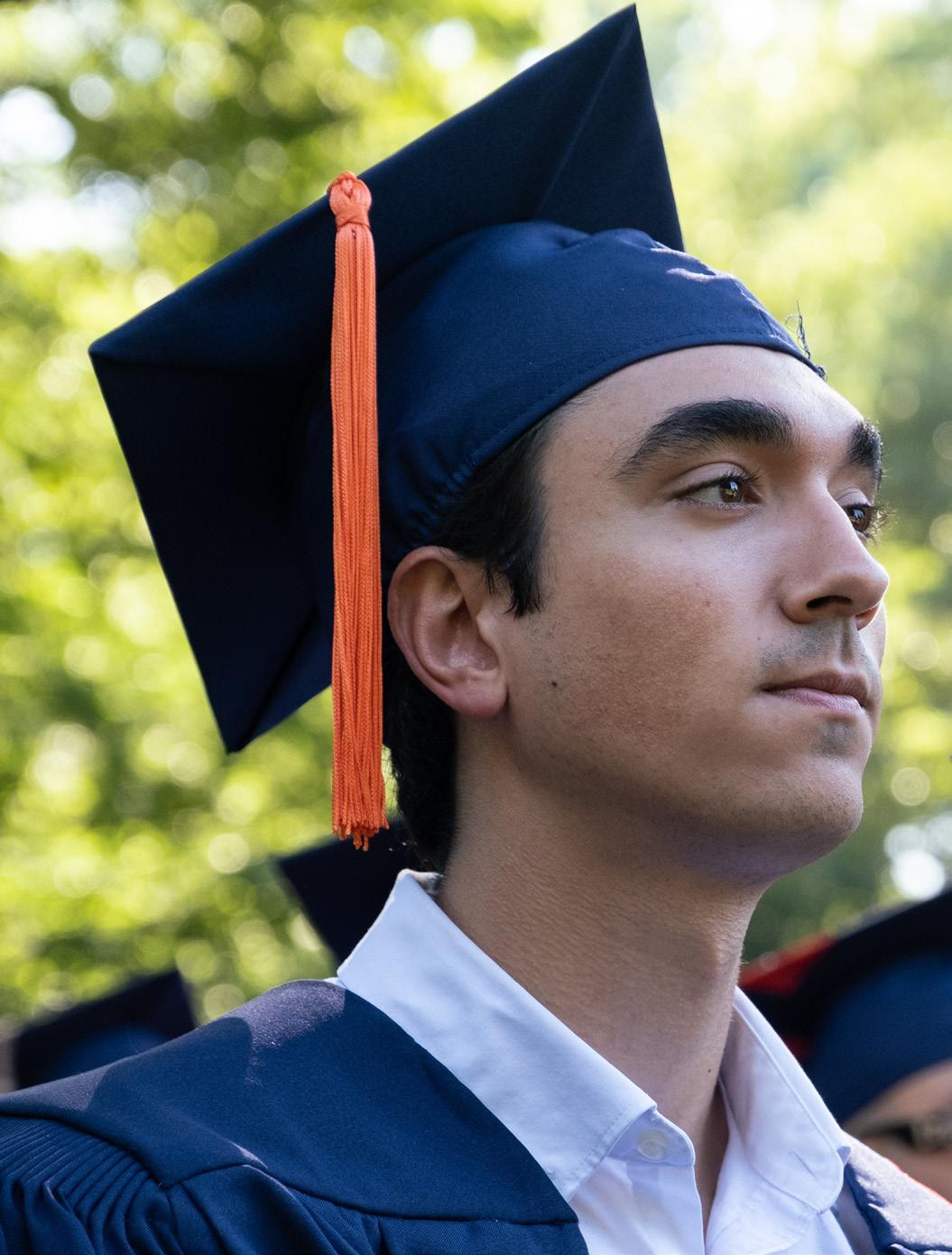

It’s been a hell of a year. Let’s Review.
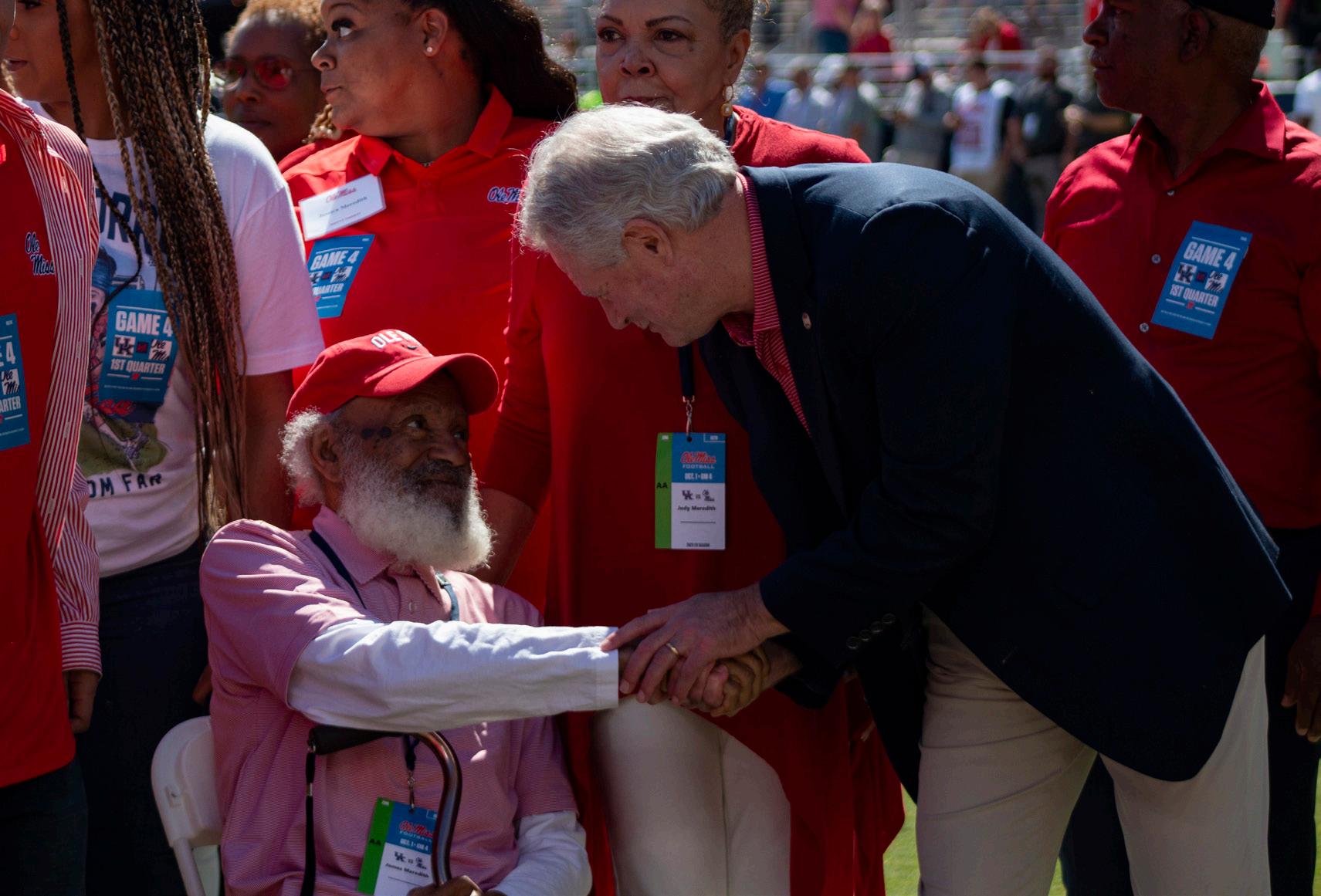


Music shined bright in a year of confusion and transition.
Ten songs, in particular, provided a bright spot because of their strong lyrics, meaningful themes or groovy vibes. Here are my picks for the best 10 tracks of the year 2022 from No. 10 to No. 1:

10. “More Than Maybe” by Maddie & Tae Music has the ability to say the things racing through our minds before we can grab a pen and paper to document them ourselves. On the new track from the country duo, listeners are reminded that, in a relationship, a mixed signal becomes a clear signal when set to the tune of twangy harmonies. It’s a simple song lyrically, but sometimes nothing hits harder than common vocabulary and a handful of campfire guitar chords.
9. “Praise the Lord” by BRELAND feat. Thomas Rhett
This multi-genre crossover track is a certified bop. When aiming for an earworm, you need the sound, lyrics — everything — to be timeless and universal, and newcomer BRELAND has done just that with this song. Sometimes I find myself restarting songs to relive the intros, but the breeziness
 AARON BARROW thedmfeatures@gmail.com
AARON BARROW thedmfeatures@gmail.com
Both theaters and streaming services alike provided a remarkable variety of hit films that had audiences of all ages excited to grab some popcorn and become immersed in the movie of their choosing.








Kicking off the list is a film that is as technically marvelous as it is harrowing. “All Quiet On The Western Front,” which is based on Erich Maria Remarque’s novel of the same name, follows young German soldiers throughout World War I and depicts their slow realization that war, in any era, is one of the most despicable acts of humankind. Ole Miss freshman Joshua Yates described the film as “one of the most eye-opening war movies” he has ever seen. “This movie shows how teenage boys would enlist with dreams of being heroes,” Yates said. “But when they get on the battlefield they realize the brutality of war.”





Director Luca Guadagnino’s latest attempt at body horror is one that uses the absurdity of its story and characters to tell a shockingly profound tale of romance and belonging. Much like his previous works, Guadagnino lets the camera linger on landscapes and actors allowing them to properly chew up the scenery. The rawness of this film is visible in its presentation, but also in its themes. It is a film that I don’t


accomplished here makes for a musical eartrap throughout.



8. “Wait in the Truck” by HARDY feat. Lainey Wilson
When I think of stellar story songs, “Whiskey Lullaby” and Carrie Underwood’s catalog come to mind, but I think HARDY and the 2022 Country Music Association’s Female Vocalist of the Year put up a really strong effort here. HARDY tells the story through the verses and Wilson leaves a chilling testimony in the chorus.


7. “2 Be Loved (Am I Ready)” by Lizzo


One thing about Lizzo is that everything she touches turns into an infectious good time, and her newest single is no exception to that rule. If there was ever a song to blast with the windows down, it’s this one.
6. “Humble Quest” by Maren Morris

“The line between fulfilled and full of myself / I’m trying to find it and I might need some help” Morris confesses on the title track of her third studio record. After a string of success and notable highs, Morris reveals how vulnerable and honest she can truly be.
5.“GoldenHour” byJVKE
If you frequent TikTok, there’s no doubt in my mind that you have heard this song.
However, this is not your usual rock-influenced, teen-angst performance the platform tends to highlight. “Golden Hour” is a beautiful love letter to an individual of whom he equates with the most gorgeous time of the day. What’s most memorable is the instrumentation that needs all kinds of recognition — it’s literal perfection.
4.
With self-sabotage as its core theme, Swift’s latest smash hits home for many people. What’s most notable is that she, in particular, has this unique ability to make the saddest song to ever cross my ears, but then layer it with a very cheerful production.

3.
The best breakup song of the year. It encompasses Puth’s classic synth-pop sound, but if I’m being completely honest, it’s so refreshing to hear him add some genuinely meaningful lyrics to his music. I believe a mixture of mindless, good time music and purposeful, healing music is what’s really necessary for an artistry to be complete — and Puth just completed his with this banger.
2. “Cannibal” by Marcus Mumford
Marcus Mumford is most frequently known for leading
the band, Mumford & Sons, but 2022 saw him dip his toes in the solo artist waters — except, he doesn’t just graze the water, he jumps completely in with his debut single. “Cannibal” is about an encounter of sexual abuse he experienced as a child. It is difficult to fully indulge in the lyrics and return with a pair of dry eyes, but the track’s vulnerability superbly highlights the human condition — something we all need to hear more about.

It’s not until you lose something that you realize it’s gone. On the album closer to Kelsea Ballerini’s fourth studio album, “Subject to Change,” she reminisces on the things she does have in life, as opposed to the things she doesn’t. “I’m doin’ alright right where I’m at / With what I have.” It’s a beautiful tribute to gratitude with an acoustic sound country and non-country fans alike are bound to enjoy.


imagine anyone will forget anytime soon. For better or for worse.

This is a film that knows precisely what it is and it wastes no time in relaying its ideas to the audience. Those ideas were visceral entertainment for nearly 2 and 1/2 hours. Ole Miss junior Joseph Welch found great enjoyment in the film’s combination of “the brutality of the viking age with beautiful depictions of Norse culture and Icelandic landscapes.” He went on to say the film “harkens back to the adventure films of Hollywood’s Golden Age of cinema in a culture bloated with superhero movies.”
With “Elvis,” director Baz Luhrmann provides one of the most controversial, yet relentlessly entertaining, biopics in recent memory. While highly stylized, the film never shies away from the maturity of its themes. Austin Butler gives a career defining performance as the “King of Rock and Roll,” and his work is elevated by the often insane film that he inhabits.
6.
This film provides a darkly comedic take on the now flourishing whodunit genre in a way that left audiences incredibly entertained. While films like “Knives Out” and the recent “Death On The Nile” don’t shy away from the comedic elements of the genre, “Bodies Bodies Bodies” takes things a step further with a hilariously
self-aware screenplay that boldly challenges its target demographic.
Gorgeous cinematography, an astounding score and incredibly bold character choices are but a few of the many qualities of Matt Reeves’s “The Batman” that make it my favorite comic book film of the last five years. Like many live action adaptations of the caped crusader before it, “The Batman” toes the line between entertainment and thoughtprovoking storytelling. The film recognizes why the character is special, but isn’t afraid to try new things and it is all the better for it.
With “The Fabelmans,” Steven Spielberg crafts an astonishingly personal semi-autobiographical masterwork that cuts deeper than anything else he has done in the last 20 years. His love for this project is felt through every frame and line of dialogue. The film is both a condemnation and a love-letter to cinema as an art form, and it shook me to my core in a way that few films have.
Cate Blanchett gives a bonechilling performance as worldrenowned composer, Lydia Tár, in a meticulously crafted juggernaut of a film. Despite a 16 year hiatus, director Todd Field doesn’t miss a beat behind the camera. He provides a disturbingly realistic look into one character’s slow, but bombastic fall from grace and I was enthralled by each frame.
2. “Top Gun: Maverick”
Box office numbers would indicate that I am not alone in my admiration for this actionpacked extravaganza. From the opening scene to the last, “Top Gun: Maverick” grabs on and doesn’t let go. The shockingly profound character work elevates the already awe-inspiring aerial sequences in a way that had entire theaters gripping their armrests. With immersiveness unlike most action films before it, including its predecessor, “Top Gun: Maverick” soars.
This film challenges its audience with each passing
scene. It never holds back and it remains steadfast in its mission to absolutely stun. From the opening moments, I was transfixed and immediately cast under its spell. “Everything Everywhere All At Once” is a remarkable achievement of creativity and is pure filmmaking in every sense of the word. It tackles multiple genres within its multiversal canvas and excels at each. The vastness of the plot never takes away from the central family dynamic which slowly builds until the eventual explosion of emotions towards the film’s conclusion. The Daniels and crew crafted what is easily one of my favorite films of all time, and I don’t imagine its impact will lessen anytime soon.
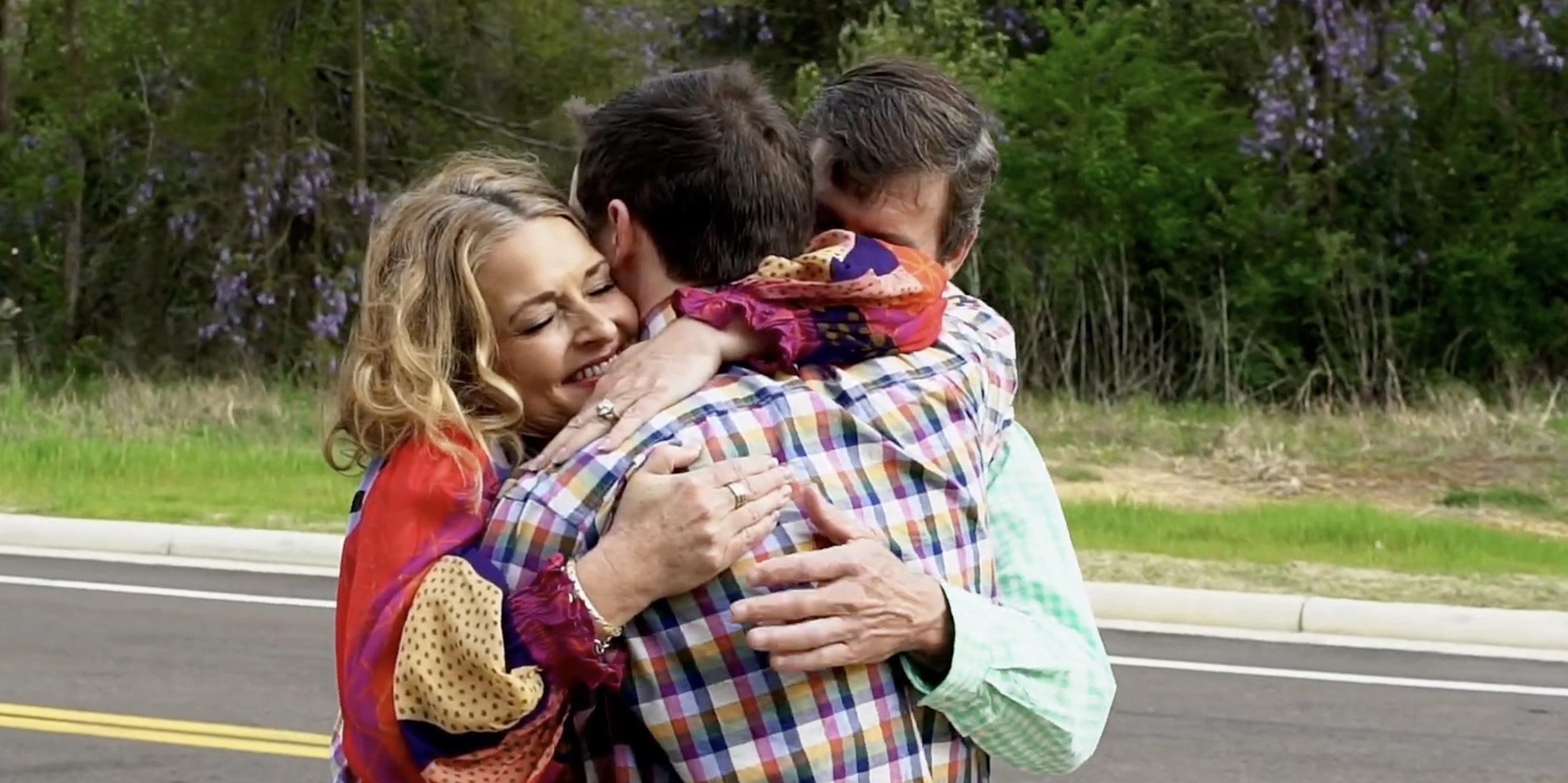 Loral Winn
Loral Winn
The legalization of medical marijuana in Mississippi gives hope to many throughout the state, but for Austin Calhoun, this new legislation means returning home to his family and friends while still having access to the only form of treatment that has helped him regain his quality of life.
Calhoun was born and raised in Puckett, Miss., where he spent his time fishing with friends and playing sports like football and tennis. In 2014, however, he noticed an unfamiliar mark on the back of one of his legs that his doctor decided to treat as a staph infection, giving him a week’s worth of antibiotics. Almost three weeks later, Calhoun found himself ill with flu-like symptoms that never let up.
“Nobody could really tell us what was going on,” said Austin. “It just progressively got worse. I developed a form of epilepsy, chronic nausea, vomiting and fatigue. I also started developing arthritis really bad in a lot of my joints.”
Austin eventually was diagnosed with Lyme disease after unknowingly contracting it from a tick bite. He visited 22 doctors and was prescribed
17 different medications to combat the chronic symptoms he faced. During this time, he lost nearly 40 pounds, and his mother, Angie Calhoun, became increasingly concerned with how deathly ill her son looked.
“One day, I went upstairs to give him his medicine, and it just still haunts me because I walked into his room and he’s lying there with a sheet on him,” said Angie. “And it just looked like a little skeleton was lying under that sheet.”
At that moment Angie and her husband, Brad, knew they needed to make a change. Through prayer and research, the couple decided to travel to Colorado Springs, Colo., with Austin to seek an alternative form of care. With a thick binder of his medical records for the year in hand, Austin and his family saw a doctor who quickly asked them about their goal for the visit.
“I was like, ‘I know that I’m not an in-state resident. I know I can’t get a medical card,’” said Austin. “‘But I just want to know if you think I’m a candidate to get a medical card.’ He looked at me and said, ‘You are the definition of a medical
candidate for medical marijuana.’”

After their appointment, Austin vaped medical cannabis for the first time and quickly felt like himself again for the first time in nearly 18 months. Because medical marijuana was not legal in Mississippi at the time, Austin made the difficult decision to move more than 1,000 miles away from his hometown to Pueblo, Colo., to have access to medical cannabis.
“I had to be somewhere that I didn’t have to worry about going to jail for being treated,” said Austin. “It was worth the journey to be able to feel like a normal human being again.”
After seeing the relief medical cannabis gave her son, Angie Calhoun decided to advocate for medical marijuana in Mississippi and founded the Mississippi Cannabis Patients Alliance.
“My true belief is that this is a form of medical freedom for the sick people of our state, and they should have the right to choose what medicine they want to treat their body with,” said Angie.
Angie shared Austin’s story with others
state as culturally, economically and politically conservative as Mississippi. In this report, University of Mississippi student journalists investigate the impact on patients, practitioners and entrepreneurs.
throughout the state and beyond while Initiative 65, a voter initiative that proposed amending the Mississippi Constitution to allow qualified patients with debilitating medical conditions to use medical marijuana, was being drawn up in 2020.

On Nov. 3, 2020, 74% of Mississippians who voted cast ballots favoring Initiative 65.
For Angie, the excitement became relief as the legalization of medical cannabis meant that her son could receive the treatment he needed while once again living in his home state. Austin returned to Mississippi as a resident shortly after Initiative 65 was approved by voters with hopes that the medical marijuana program in Mississippi would be up and
running in the next few months.
However, his plans were put on hold after the state Supreme Court ruled the ballot initiative process unconstitutional in May 2021.
“I sold my home in Colorado and came back home, and I would say roughly two weeks later, the Supreme Court made their decision on Initiative 65,” Austin said. “I was like, ‘I can do what I need to do to survive until (legalization) happens.’”
Ultimately, the Mississippi Medical Cannabis Act, which was similar to Initiative 65, was approved by the legislature on Jan. 26, 2022, and Gov. Tate Reeves finally signed the bill into law on Feb. 2, 2022.
“I felt so elated,” said Angie. “It was a huge relief because we fought so hard. I know it’s two years, but it seemed like an eternity.”
Though it took longer than he anticipated, Austin has qualified for his Mississippi medical marijuana card and looks forward to himself and others across the state getting access to life-changing treatment.
Angie Calhoun and the Mississippi Cannabis Patients Alliance still actively advocate for the more than 147,000 patients in the state who suffer from chronic pain that could be alleviated with medical marijuana. She collaborates with the state health department, dispensaries, doctors, pain clinics, researchers, growers and patients to ensure Mississippi’s medical cannabis program is successful and safe.
“I love people. I love helping people,” said Angie. “I know that medical cannabis can help so many people regain their quality of life. I want everyone to potentially have the same benefits that my son did.”
In a state where many residents find it challenging to access adequate medical care, the legalization of medical marijuana in Mississippi is an extraordinary development.
Patients suffering from 23 debilitating conditions, including Alzheimer’s disease, cancer, muscular dystrophy, Parkinson’s disease and Sickle cell disease, can now consume medical marijuana for relief from their pain and treatment of their illnesses.
Gov. Tate Reeves signed the medical marijuana bill into law on Feb. 2, 2022, but getting to that moment was a difficult journey.
“We’re really excited about the program being a reality now,” Melvin Robinson III, communications director for the Mississippi Cannabis Trade Association, said earlier this year. “Man, it was a long time coming.”
In the United States, the medical benefits of cannabis have been recognized since the mid-19th century. The United States Pharmacopeia, a book published regularly containing a list of medicinal drugs with their effects and directions for their use, included cannabis for the first time in 1850. To put that into perspective, Mississippi’s oldest university, the University of Mississippi, was established just two years before that in 1848.
The relationship between the United States and cannabis from there forward is a rocky one.
Cannabis was widely used as a patent medicine during the 19th century but was dropped from the Pharmacopeia in 1943 after federal government restriction of cannabis sale and use first occurred in 1937 with the Marihuana (sic) Tax Act. Its use became an even greater point of legal contention with ratification of the Controlled Substances Act of 1970. Cannabis was designated a Schedule I controlled substance with no accepted medicinal use, high abuse potential and concerns for dependence, effectively locking the door and tossing the key on legal marijuana usage.
However, nearly 30 years later, California became the first state to loosen the reins on medical marijuana usage with its 1996 Compassionate Use Act. And since then, particularly within the last decade, numerous state regulations have been amended to include the use of cannabis for both medicinal and adult-recreational use.
Today, medical marijuana remains fully illegal in just four states. The remaining 46 states in our union have legalized marijuana in some way,
ranging from Cannabidiol (CBD), a compound found in THC, to full legal use of marijuana in any way for any reason.
The most recent state to fully lift the curtain on medical marijuana use is Mississippi, with the Mississippi Medical Cannabis Act taking effect this year. Though the legislation became law with just a stroke of the governor’s pen, it was a long and arduous road to legalization.
In 2014, Mississippi House Bill 1231, or “Harper Grace’s Law,” legalized the use of processed
debilitating medical conditions to use marijuana. Only 26% percent of voters voted yes to Initiative 65A.
It was a monumental victory and demonstrative of the fact that lawmakers in Mississippi had been ignoring what the state’s population wanted for a long time. However, the following year, the Mississippi Supreme Court in a controversial 6-3 decision voted to strike down this particular initiative vote and the ballot initiative process as a whole. At the time, the Mississippi Constitution stipulated that for a ballot initiative to be considered, it must have signatures from residents of all five congressional districts. The issue was that, due to federally mandated redistricting proportionate to population size, Mississippi’s congressional delegation had been reduced to only four districts since the turn of the millennium. With the ballot initiative dead, it looked like the medical marijuana movement in Mississippi was back to square one.
Many Mississippians feared this was a thinly veiled attempt to stop medical cannabis in Mississippi before it had even begun. The state legislature had blocked more than 20 bills that would have created a medical marijuana program over the previous 10 years.
cannabis plant extract, oil or resin that contains more than 15% of cannabidiol (CBD) and no more than 0.5% THC. For many, this was not enough to alleviate chronic pain or to be used in any recreational sense.
In 2020, a citizen-led movement resulted in the creation of Initiative 65. A ballot initiative is a way for citizens to get the issues that are important to them on the ballot for a statewide vote, and more than 228,000 registered Mississippi voters signed the petition to put medical marijuana on the ballot. The initiative supported medical marijuana treatment for more than 20 qualifying conditions, allowed individuals to possess up to 2.5 ounces of marijuana at one time and allowed medical marijuana sales to be taxed at the current sales tax rate of 7%.
Despite lawmakers muddying the water with a competing initiative by a very similar name — Initiative 65A, which restricted medical marijuana consumption to terminally ill patients and left items such as tax rates and possession limits to be set by the legislature — Initiative 65 prevailed. In November 2020, 74% of Mississippians who went to the polls voted yes to amending the Mississippi Constitution to allow qualified patients with
Angie Calhoun, founder of the Mississippi Cannabis Patients Alliance and mother of a son with an illness treatable with medical cannabis, told Mississippi Today at the time, “In addition to silencing the votes of three-fourths of the state, today the Supreme Court squashed the hope of thousands of patients like my son, who will now not be able to find relief through medical marijuana. As a mother of a patient, I am heartbroken and outraged that this was allowed to happen.”
But after a loud public outcry, lawmakers broke expectations and scrambled to adjust and craft a bill that would work.
In January 2022, Senate Bill 2095, authored by 10 senators, was introduced to the Mississippi Legislature. It had many of the same stipulations as Initiative 65, and in less than a month and with overwhelming support from the Legislature (46-4 in the Senate and 103-13 in the House) the bill became law.
Sen. Kevin Blackwell of Southaven, sponsor of Senate Bill 2095, summed it up when presenting the legislation to his colleagues in the state Capitol:
“There are a lot of sick folks out there that this is going to help, and there are a lot of people that have been waiting a long time.”
You may be a University of Mississippi student with at least one qualifying medical condition, you may have a written certification issued by a state-approved health care practitioner, you may have a registration card from the Mississippi Department of Health and you may have purchased a medical marijuana product that meets all state guidelines.
You may have followed all the rules, but you still cannot consume medical marijuana on campus.
The Mississippi Medical Cannabis Act passed by the legislature this year does not change the university’s policies that prohibit the possession or consumption of marijuana on the University of Mississippi campus, according to Jacob Batte, director of news and media relations at the school.

“Marijuana remains a controlled substance under federal law, and the university is required to comply with federal law as a recipient of federal funding, including student financial aid and federal research grants,” he said in an email response to questions about use of medical marijuana on campus.
“Students or employees – even those who are registered qualifying patients under Mississippi law – found in possession or under the influence of marijuana on university property or at a university-sponsored event will
be subject to discipline as outlined in university policy,” Batte wrote.
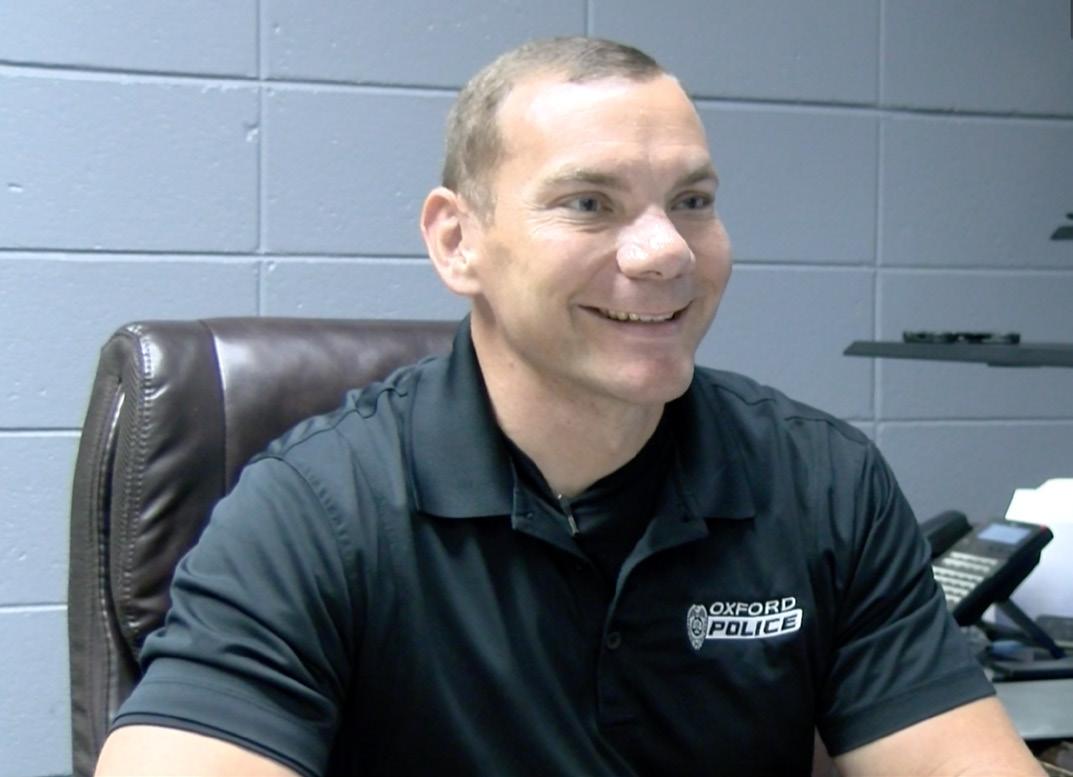
Off campus, the rules are more relaxed. Sale and consumption of medical marijuana are now legal in Oxford and Lafayette County, and although the Oxford Police Department has been a vocal opponent of the medical cannabis program, Chief Jeff McCutchen says the department is ready to tackle new procedures.
“State law (about recreational use of marijuana) is pretty cut and dry,” McCutchen said. But based on the new legislation, with people now allowed to possess marijuana for medical use, “you almost have to think of it a lot like we would from an alcohol standpoint.”
“So you have a card, but if you are driving and you are impaired, based on what you’ve ingested, now we’re looking at a totally separate incident,” McCutchen said. “That falls under like driving under the influence. And we have to think of it in the way we’ve been doing alcohol-related issues for over half a century.”
Much like the state Alcoholic Beverage Control Enforcement Division of the Department
of Revenue regulates the sale of beer, wine and liquor at bars, restaurants and package stores in Mississippi, the ABC is responsible for licensing and regulating medical marijuana dispensaries and enforcing medical cannabis laws as they apply to the purchase, sale and distribution of medical cannabis at those dispensaries. To meet those responsibilities, 12 additional enforcement officers have been hired, bringing the total to 36 ABC enforcement agents statewide.
As a growing number of patients are procuring their registration cards to participate in Mississippi’s medical cannabis program, approximately 50 licensed cannabis cultivator companies are trying to navigate how to get their crops to consumers.
The industry is expected to be operational in early 2023, but in a tightly regulated market, many micro-growers are feeling pressure to figure out how to comply with state regulations while still making a profit.
Lorri Williamson, who is a part of New Altitude Farms, was a professor at the University of Mississippi for 23 years, teaching mainly in the criminal justice department. Her husband, Mike, however, comes from a long line of farmers in Water Valley; they have been living on his family farm since they’ve been married.
Over a year ago, he declared he was done growing cotton. Theirs has always been a frugal farm, Lorri Williamson said, and their cotton picker was too old to get repaired because the parts were no longer being manufactured. A new machine would cost approximately $1 million.
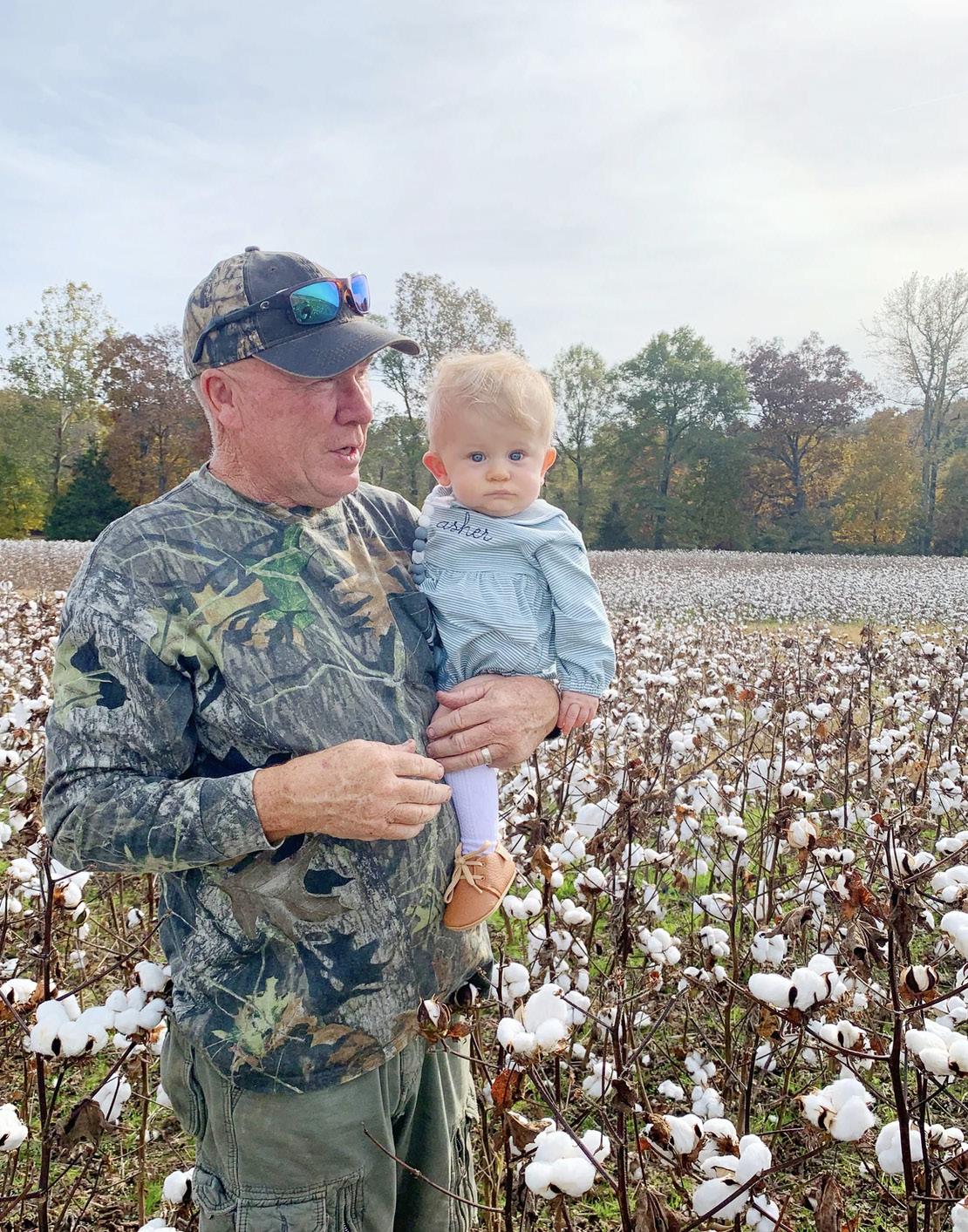
Knowing that this was too expensive an investment, they began looking into growing cannabis instead.
The micro-growers licensing has a two-tier system, with an application fee of $1,500 and an annual fee of $2,000 that entitles the grower to no more than 1,000 square feet of cultivation in Tier 1. For Tier 2 growers, this cultivation can span from 1,000-2,000 square feet, with a $2,500 application fee and a $3,500 annual fee.
Attorney Slates Veazey, who is specializing in cannabis law in Jackson, believes this tier system is what evens out the market for micro-growers.
“I think the goal of the legislation and the regulations is to have an equal program where the different tiers of these businesses … can succeed,” he said. “For the micro-cultivators and microprocessors, it’s a lot cheaper to get a license.”
He also adds, “People like these mom-andpop type stores … in everything whether it’s food, beverage or clothing, and I think there will be an appetite … for smaller cannabis companies.”
But micro-growers like the Williamsons aren’t sure that they can even reach the cultivating process as legislation continues to shift.
“I’d like to know why they’re (always changing the regulations). Maybe I would be okay if I knew the reasoning,” said Williamson. Two weeks prior to this interview, the Department of Revenue informed growers they would be responsible for packaging their cannabis crop in addition to cultivating and transporting via a certified cannabis transportation company.
The state’s requirement of growing completely indoors has been a burden for the Williamsons, and even for large companies like Mockingbird Cannabis LLC. Despite an investment upwards of $26 million, Mockingbird was caught in September growing in hoop houses – plastic covered greenhouses – a potential violation which they are still in debate over with the Mississippi Department of Health.
With the help of a more experienced cannabis grower who had moved to Mississippi to work in the nascent medical cannabis industry, the Williamsons worked to convert their sweet potato shed into an enclosed grow facility outfitted with
top of the line grow lights.
“We would like to think that small farmers could do this,” Williamson said. “It’s expensive, and it probably could have been done less expensively … in a smaller way than (they) have.”
Regulations state a grow facility must be completely contained within four walls, a roof and flooring; sunlight is not permitted. Crops instead must be grown under controlled light. This was another issue for Mockingbird — they were forced to destroy more than $1 million in crops due to exposure to sunlight.
Gary Beck, co-owner of Be Green, has devised a way to utilize truck trailers as a way to sustain his mirco-growing operation. He asked that, for safety and security, the location remain undisclosed.
Beck believes that soon the federal Food and Drug Administration (FDA) will take over regulations, which is why he is currently painting the trailers FDA-compliant Battleship Gray.
Though he foresees future federal involvement, as it stands now he is struggling with the state requirements.
Currently, the Mississippi Department of Health and Department of Revenue are charged with establishing oversight of the new industry; however, they are still in the staffing process and are struggling to keep up with the momentum of the burgeoning industry.
“(The lawmakers) don’t know what they’re doing. They keep changing (rules) continuously, which is really unfair because people like me who are taking their last dollar as my investment … they haven’t given us specifications. They may add or change something in the middle (of building).”
The lawmakers, he says, are pulling legislation from neighboring states without regard to tailoring it for Mississippians. “I’m not always against the government, but I don’t like their policies and procedures when they’re not doing it. If they were
here on my end doing it, they might change their mind on a lot of the regulations,” Beck added.
Attorney Slates Veazey is of a different mindset. “The good and bad from each program (from other states) helped shape what we now have as our cannabis program,” he said.
He added that Mississippi is not as restrictive as states like Alabama, which is limiting licenses to those considered most qualified according to what sometimes can be subjective standards, rather than those that meet the minimum requirements.
Veazey also believes that Mississippi “has more safeguards in place” to prevent a tumultuous rollout, such as Oklahoma’s medical cannabis program, which he calls “the Wild West.” Oklahoma has been critiqued for its lax laws on licensing, which has led some to call into question the validity of its medical intent.
Beck’s main issue is with the Standard Operating Procedure, or SOP, which is the step-by-step process outlined for operating a cultivation business.
“If you’re (applying) yourself, trying to save money … for the structures and equipment, it’s time-consuming,” he said, adding that a lawyer is practically required, in his opinion, to sort through and research the regulations, which could hinder some people’s entrance to the market.
Veazey even says that “while it’s not a competitive application process, there are a lot of boxes to check, and it requires a lot of prep –and money, quite frankly – to have a compliant application.” His team is composed of real estate and corporate lawyers, as well as contract specialists to assist his own clients. They also maintain a cannabis law blog, Budding Trends, where Veazey is a contributor.
Beck has already had experience in the cannabis market; in Gainesville, Fla., he was a part of a research team devoted to assisting veterans in moving away from using opioids to cannabis. He said he has benefitted from using medical cannabis, as he has chronic pain. Previously, he was prescribed upwards of 30 pharmaceutical medications but wanted to shift towards something he sees as more “natural.”
He is excited for Mississippi’s medical cannabis program, because he believes “it gives you an opportunity to do what you want for your body, not what you feel someone is trying to force feed you.”
Beck is far from the only one who is eagerly anticipating the program. When Initiative 65,
As for state revenue, there is a sales tax of 7% on all dispensary sales, as well as an excise tax of 5% on the cultivators based on sale price. But said tax rates are only dependent on the success of growers.
Further, Mississippi currently does not allow for exportation of cannabis to other states. All cannabis must be grown and sold in the state, which could create a hard ceiling on demand.
Beck is in favor of taxes because Mississippi “can finally not be last on the map economically,” he said. “Revenue-wise, if it’s used correctly, this could help our education system and our kids. There will be jobs in extraction, in transportation and in many other sectors.”
An influx of cannabis-related services has already started. Testing facilities, proper waste disposal, security, transportation and construction are necessary to support the cultivators and dispensaries. Further, cannabisspecific enterprises such as resource planning, insurance and point of sale system companies have begun to look into Mississippi for expansion.

But for micro-growers, it’s possible that all of these sectors are going to be an economic burden. Lorri Williamson remarked that her family has “taken money out of retirement, out of savings, it’s all (their) money.” And while she wants the medical marijuana program to succeed for Mississippians and wants people to have an alternative to regular medicine, she also wants to make her money back.
Williamson is one of many banking on cannabis cultivation to fund her and her husband’s retirement.
Similarly, Beck says he lost a large portion of his savings during COVID to a startup he had invested in prior to the pandemic, and he has other friends in the agriculture business in
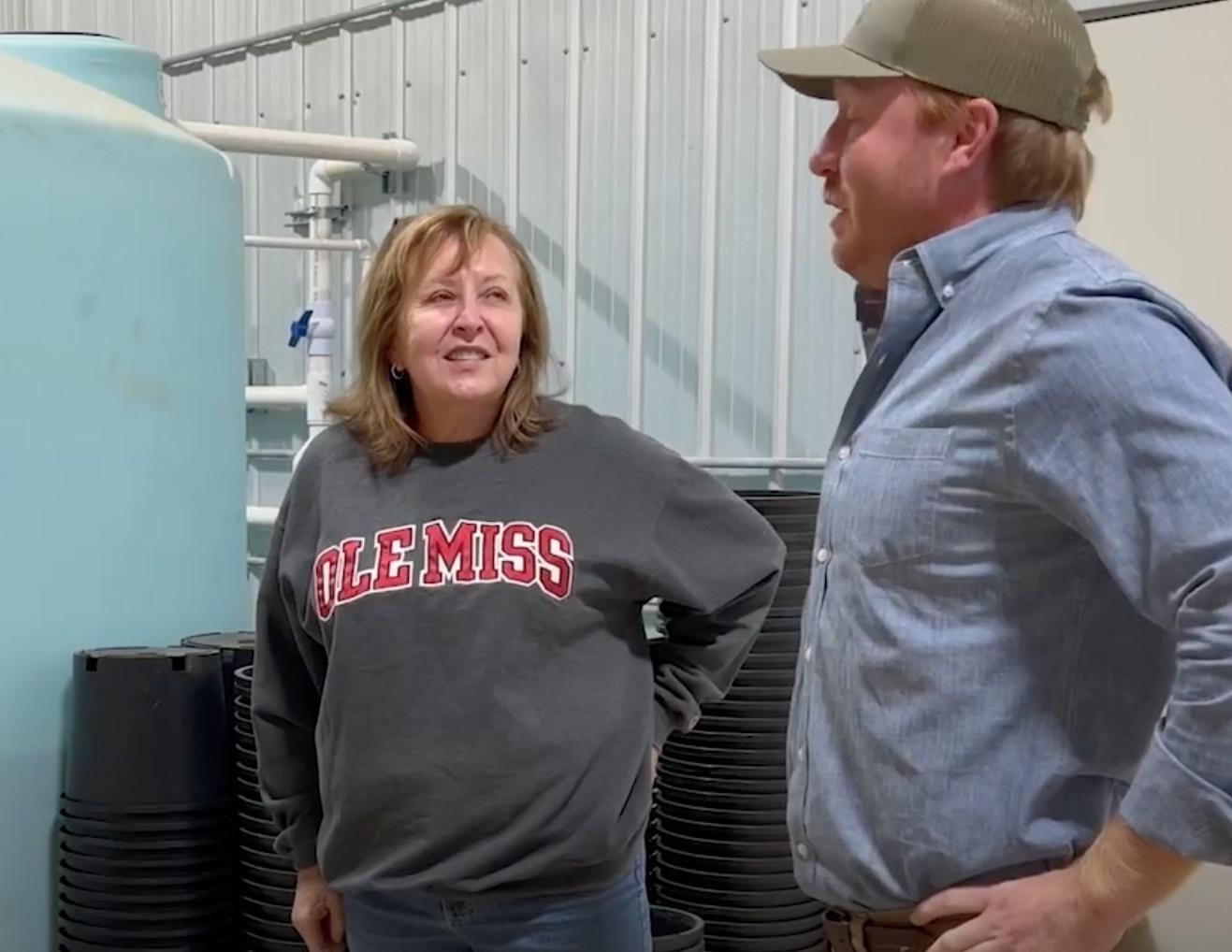
“Some (of the people I know in the industry) are farmers who are getting two micro-grower licenses because they lost everything and are trying to make it back,” Beck said. “Most of them began growing hemp when it became legal, and then weren’t able
In 2020, Mississippi signed into law Senate Bill 2725, also known as the Mississippi Hemp Cultivation Act. While it was intended to create a hemp cultivation program, according to the Mississippi Department of Agriculture, “the necessary funding
to implement the program was not appropriated by the Mississippi Legislature.”
It is still legal to grow hemp in Mississippi, however it requires a federal license. According to Beck, many of his friends lost their investments as their crops did not have the state funding that was expected to offset initial costs and then had to sell their product at cheaper prices than were anticipated. Much of the hemp was also unsellable due to higher than regulated THC levels found in the strenuously cultivated crop.
He does not fear, nor do his friends, he says, that a similar fiasco like Senate Bill 2725 will occur with this medical marijuana program.
Beck says this is more than a get-rich-quick endeavor for him. “If it’s only about money, you’re going to fail, from a cultivation standpoint. It takes a lot of knowledge about the industry and about farming in general. You need experienced people who have a passion for this. If you do, you’ll make a good medicine.”
As for Williamson, while she too believes this is a beneficial medicine for Mississipians, she also points to the long-time agriculture business here; it is the state’s largest industry, with more than 17% of the state’s residents employed in the agricultural sector.
“My dream would be that those of us that have lived our lives in Mississippi and put in the hard work on the farms have an opportunity to get into this business … that it can be a profitable business for them, because it’s getting harder and harder to make money on … the crops we’ve always grown. I just hope it would be an avenue for cultivators because if not, we’re going to lose a lot of small farmers.”
She also is in favor of Rule 5.1.2 Section 40, which says cultivators must have been Mississippi residents for at least three years because she’s “not keen on people coming from outside of Mississippi and opening these operations. (She) would rather it be people who have persevered on their family farms, and not people with lots of investors seeing this as a way to make money off Mississippi.”

Her concerns are valid; at the Lucky Leaf Expo, the majority of those showcasing their cannabisrelated products and services hailed from places such as Colorado, California and Oklahoma. They are capitalizing on the so-called “Green Rush” for Mississippi. While it is a traveling trade show, Lucky Leaf still created a sense of unease for some who fear they might lose out on opportunities in their home state.
As Williamson put it, “I just want it to be about Mississippians being able to sustain their small family farms.”
Tony Barragan, one of four medical marijuana dispensary license holders in Lafayette County, started Hybrid Relief North Mississippi in early 2022 to provide medical marijuana to the Oxford community.
As such, he is one of the thousands of people in the state who are looking for business opportunities in the wake of Mississippi’s new medical marijuana law, and he is one of many who also have a personal reason for promoting the health benefits of cannabis.
Barragan has been involved in the launch of eight businesses in Oxford, including Bim Bam Burgers and Wings and Joysticks, but it was his battle with mental illness that he said ignited his interest in the cannabis plant, first with CBD and later medical marijuana.
“(It was) depression, which I was dealing with in a major way. That’s what really caught my attention,” Barragan said.
As a user of CBD, Barragan found the treatment helped him focus so that he “wasn’t thinking about all (his) problems that (he) had in the middle of the beginning phase of a divorce.”
In 2019, he opened Hempville CBD in Oxford. There he sells CBD products in the form of oils, edibles and other preparations.
“I fell in love with it. I love everything about it. The plant, the benefits, the fact that hemp-derived CBD was legal in Mississippi,” he said.
When the state of Mississippi legalized medical marijuana in early 2022, Barragan knew he wanted to open a dispensary as soon as possible.
According to Dr. Charles Dibrell, chair of Entrepreneurial Excellence and Professor of Management at the University of Mississippi, those interested in starting their own businesses typically fall into two categories.
“Those who are really passionate about it … and those
who graduate and have the skills look at a wide-open industry and use their business skills and knowledge on how to run a business to tackle this industry.”
Kelly’s Green, the first female-founded medical marijuana company in Mississippi, was dreamed up by two lawyers, Jackson, Miss., native Kelly Williams and her co-founder, Chad King. The company holds a license to open a dispensary in Forrest County.
King said the two have long been interested in the laws surrounding marijuana use and “got started representing parents who had lost their children to Child Protective Services because they had tested positive for marijuana.”
In 2017, the pair began advocating to change Mississippi law to prevent children from being taken away from their families, which was a precursor to their work with other advocates on Initiative 65, the ballot measure to allow qualified patients with debilitating medical conditions, as certified by Mississippi licensed physicians, to use medical marijuana.
“Kelly was the very first donor to Initiative 65, and they were out on the street getting signatures to move the initiative along,” King said.
Williams has other personal connections to the fight to bring medical marijuana to Mississippi. The company website reads, “When my father died from Alzheimer’s disease in 2018, I found myself wishing he had more options for treatment and pain relief,” Williams said. “Also, when my own niece was diagnosed with Ewing’s sarcoma, my eyes were opened to the intensity and senselessness of her pain and suffering.”
At the Lucky Leaf Exposition, an event at the Jackson Convention Complex in October that promoted medical marijuana businesses in the state, attendees didn’t have to look far to find someone hoping to align their passion for medical marijuana with the potential to make a profit.
Expo attendee and lifelong Mississippi resident David Hutchins has been in the marijuana industry for 16 years through his craftsmanship of vaporizers using what he calls “the world’s finest and rarest woods.” Thanks to woodworking skills he says he inherited from his dad, he creates pipes and vaporizers for marijuana use.
He hopes the new market for medical marijuana in Mississippi will help minimize what he calls the “touchy stereotype and stigma” around the nature of his work.
“I feel like it is a great fit for me to be able to do what I do in manufacturing tools to medicate people with and now being able to give them that access to the medication as well,” Hutchins said. He noted he also is considering opening his own dispensary.
In the marijuana business where there are strict regulations at the federal, state and local levels, high taxes on items sold in dispensaries and high agricultural and machinery costs, it takes a special person to get involved in a business with so many obstacles.
Dibrell, the chair of Entrepreneurial Excellence at UM, said successful entrepreneurs don’t have to have extreme confidence or ability to take risks, but there has to be “a good team around you.”
“You don’t need to be an introvert or an extrovert,” he said. “Find where your weaknesses are and bring (those who can make up for them) onto the team.”
According to Cannabis Business Plans, Mississippi’s medical marijuana industry could generate as much as $800 million in sales by 2024.
Most people will get into related businesses for profit, but some maintain there are other factors that motivate them.
“We are passionate about this industry. We love what we do,” Hybrid Relief North Mississippi’s Tony Barragan said. “We care about the patients getting the relief that they need.”
Mississippi’s legalization of medical marijuana has led to hope for many patients and confusion for many practitioners, who must get mandatory training about the drug in order to approve patient use. Although medical marijuana has been legal in some states for more than a decade, according to the most recent data available, a significant percentage of practitioners receive no formal education about the medical consequences of marijuana use.
“I’ve been a physician assistant for 10 years,” Anna Burns, who practices at Oxford Orthopedics & Sports Medicine, said. “Medical marijuana was not very obvious or out on the radar [10 years ago], so really we didn’t have a lot of education … and even now, with being a provider and understanding the ramifications that will happen when I maybe have patients that are on these types of medications, there’s still a lot left to be determined.”
Mississippi’s medical schools have done little to educate students broadly about marijuana’s medical uses, according to one Oxford physician.
“I went to school at William Carey University, and I did my residency at the University of Mississippi Medical Center (UMMC). I had zero education about medical marijuana in either — with the one exception of there’s a medication for seizures called Epidiolex, which has a component from marijuana,” Dr. Megan Edwards of Oxford Neurology Clinic said.
A representative from UMMC responded to a request for information about the school’s medical marijuana instruction with an email stating that the school follows the recommended curriculum provided by the American Association of Medical Colleges (AAMC). However, in response to a request for information from the AAMC, a representative stated, “Neither the AAMC nor the LCME, the accreditor of medical schools, recommend or prescribe any curriculum to medical schools. Each school comes up with its own curriculum based on its mission and values.”
One current medical student at UMMC, who did not want to be identified, said that they have received detailed instruction about both the benefits of medical cannabis and the biological effects of it in one course taken with an instructor who also participates in the university’s cannabis research program. However, the student did not know if every student in the school is exposed to this information.
Both Burns and Edwards said they would be more likely to and more comfortable with certifying the use of medical marijuana if they had more education about the endocannabinoid system (the portion of the body on which marijuana acts) and the interactions it may have with other drugs.
“There’s still a lot, again, left to be determined in regards to the education on how it’s going to counteract with other medications and maybe, you
know, things that I do in order to provide care for my patients,” Burns said. Right now, Burns has no plans to become licensed to certify patients for medical cannabis use.
As of early November, 448 patients had been approved for a medical marijuana card, and only 118 practitioners are licensed to certify medical marijuana use.
The initial requirement for Mississippi practitioners to be licensed to certify medical marijuana use involves eight hours of continuing medical education (CME) along with an extensive application process. The licensed practitioners must be registered with both the Mississippi Department of Health and their respective licensing boards. Following initial certification, a practitioner must earn five hours of CME each year.
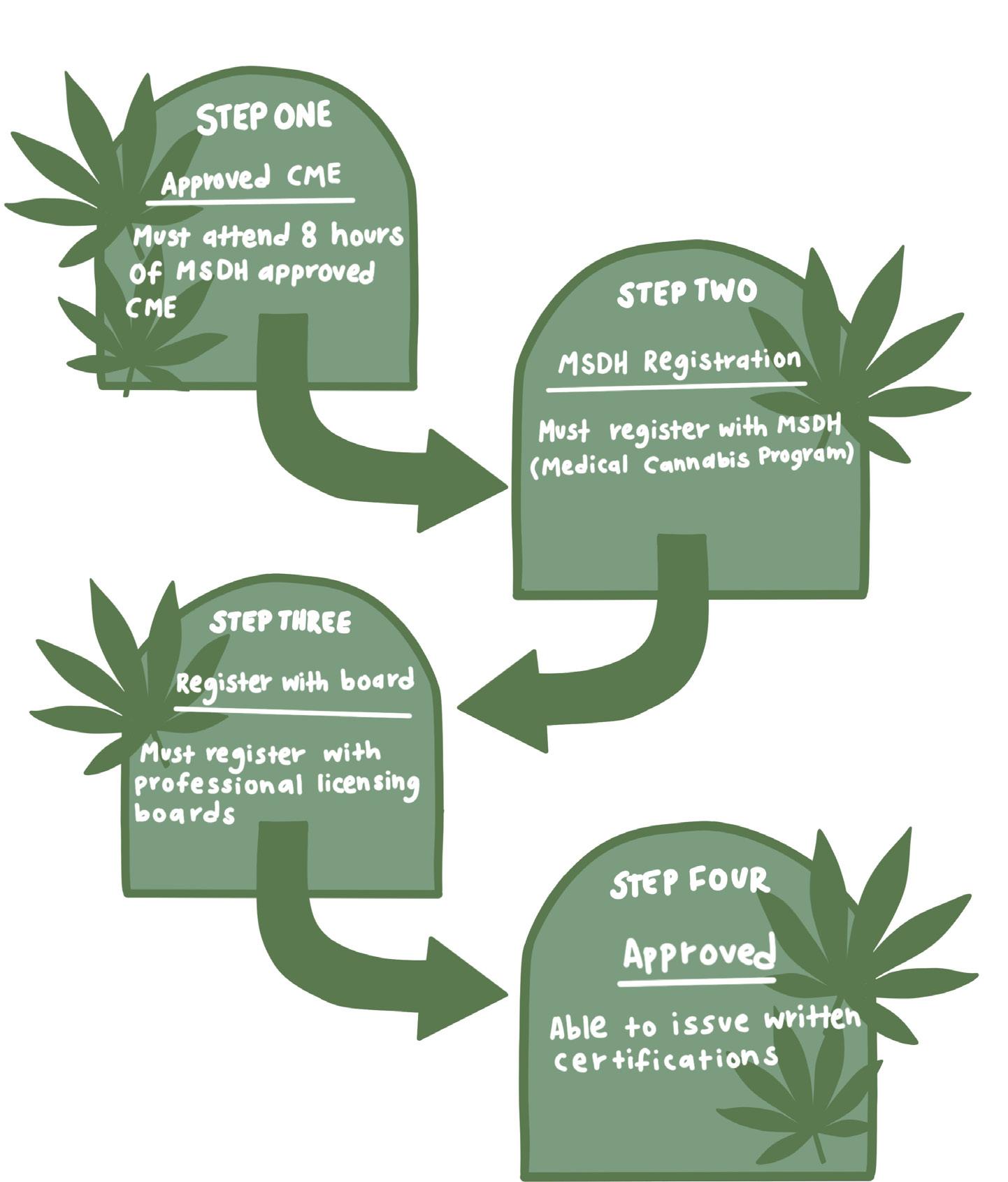
Dr. Lane Pitts, a physician in the Hattiesburg area, has already completed the staterequired CME, which consisted of seven Powerpoint presentations developed by physicians and other cannabis experts in the state. The education included state regulations affecting providers as well as the potential risks associated with medical marijuana. Pitts has not yet registered with the state health department or state licensing board.
“I found the state required/sponsored CME to be informative but very general in nature,” Pitts said. “Information regarding the specific types of marijuana that are anticipated to be available in the state dispensaries were not provided or available at the time. Certainly, I would like to learn more about this once further information is available.”
This lack of information as well as a lack of research due to marijuana being illegal at the federal level are two reasons why Pitts and other practitioners around the state are hesitant to get certified. Edwards is taking a slightly different, but equally cautious approach.
“So my plan is to do the training. I would like to do it mainly because I’m going to have patients who ask for it. This would qualify me to be able to give it, but I also just want to know what the process is going to be and kind of go from there,” Edwards said. Following the training, she says, she will decide if she feels comfortable authorizing medical cannabis for patients.
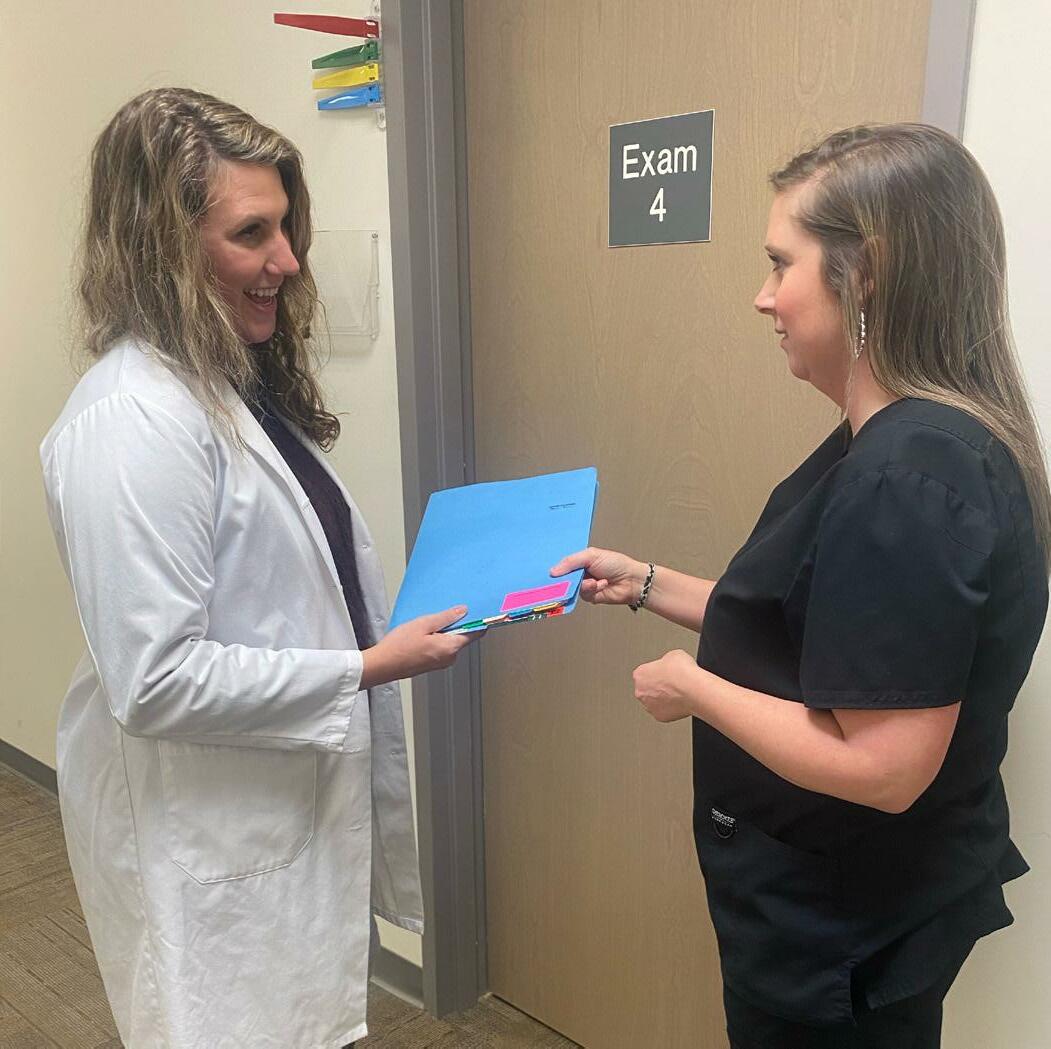
But not all physicians around the state are hesitant. Dr. Kirk Kinard, a pain specialist at Willow Pain and Wellness in Oxford, has already become licensed to certify patients for medical marijuana use and is opening new clinics around the state to help patients obtain medical marijuana cards.
“I think cannabis has as much a role there with the secondary pain behaviors, sleeping better, less anxiety, less social withdrawal, these kinds of things, when you can’t take all the pain away,” Kinard said. “And that’s really where my excitement for it comes.”
While Kinard is excited about new treatment opportunities for his patients, he also acknowledges that entering this field will be a learning process over the next couple of years.
“Our providers over time will become experienced with that and take the patient’s feedback and formulate a pattern of what has worked for what conditions or what age ranges naturally and
really be able to help,” Kinard said.
Pitts said he already has patients asking about the treatment.
“Thus far, most of my patients that have asked about medical marijuana are interested in using it for chronic pain,” Pitts said. “It will be interesting to see if medical marijuana might help some of these patients get off of their current chronic prescription pain medications.”
The possibility that medical marijuana use could decrease patients’ dependence on prescription opioids was mentioned by many providers.
“I think (marijuana) fits before opioids or during opioid therapy to disallow escalation of opioids –potentially de-escalate or even replace – but you’ve got to be careful about that. Your goal doesn’t need to be to replace this with that. It needs to be improving the patient’s quality of life and function by giving them the fewest medications,” Kinard said about where marijuana fits into the timeline of treating chronic pain.
Other qualifying conditions for the use of medical marijuana include a variety of neurological disorders such as Alzheimer’s and Parkinson’s diseases, cancer and debilitating diseases that produce seizures or severe nausea.
Though these medical practitioners are taking steps to ensure they can help their patients, Edwards said the state could make it less of a burden to get educated.
“The issue with CME is that we have to pay for that,” Edwards said. “Even if I choose not to get my license for it, I want to be educated about it because I’m going to have patients on it. … You’re putting another burden on your physicians and other providers to understand that – whether they are licensed or not.”
The CME training costs $200, according to the health department. Edwards also points out that CME is more accessible on other topics.
“They should offer this education to us more readily and it shouldn’t be that we seek out the education,” she said.
All of the physicians agreed that medical practitioners in the state need to know more, whether they support the new law or not.
“It’s not that I’m for it or against it because I think there’s good and bad with it. We just need education,” Edwards said.
Loral Winn contributed to this report.
As Mississippi’s first company to receive licensing for medical cannabis cultivation and processing in the state, Southern Crop and its relationship with its hometown of Meridian will be something to watch.
The company’s chief marketing officer, Yesenia Garcia, said the initial reception from the city has been very positive.

“The people of Meridian make it a great place to be, and being a part of this community is essential to the development of the city and the cannabis program,” Garcia said. “We strive to be good stewards by ensuring we provide competitive wages and career development opportunities and by supporting local groups.”
Meridian’s community development director, Craig Hitt, said Southern Crop hasn’t yet started hiring those who will operate the facility, which will not only grow marijuana but also process it –essentially creating usable marijuana for sale to retailers.

“There are lots of construction jobs on site and they have also hired a security group that is in place on-site 24/7 now, but they have not actually started hiring workers,” Hitt said. “In fact, I saw one of the Southern Crop guys at a recent event and they are saying around the first of the year they intend to be at full operations. In the next few months, there will be some jobs created.”
By some estimates, a large marijuana-growing facility will need to employ 150 to 200 people and some jobs could pay $50,000 per year. More than 100 medical cannabis growing and processing facilities have been licensed in the state with three in Meridian, which had a 3.8 percent unemployment rate as of September.
One job opportunity within Southern Crop is that of a cultivation technician. The company will pay $20 per hour and is looking for those over the age of 21, with a high school education or equivalent and a willingness to work weekends and some holidays.
Hitt said the opportunity to bring high-paying jobs to the area is just one of the reasons why Meridian seems to have reacted positively to the medical cannabis industry in the city.
“It has been favorable. In fact, I have been a bit surprised and pleased that it has been as favorable as it has been,” Hitt said.
In other parts of Lauderdale County, where Meridian is located, there was more hesitancy. The Town of Marion has opted out of allowing medical marijuana-related businesses and the county supervisors did, too, but county residents petitioned to force a vote on Nov. 8. The county’s voters were asked whether they were for or against allowing
cultivation, processing and sales of medical marijuana within unincorporated areas of the county. Of the 14,918 votes cast, 8,190, or 58.4%, were in favor of allowing medical cannabis to expand into Lauderdale County, while 5,835 voters, or 41.6%, were against it.
Throughout this process, Hitt said, Meridian has relied on Southern Crop’s background in the medical marijuana industry.
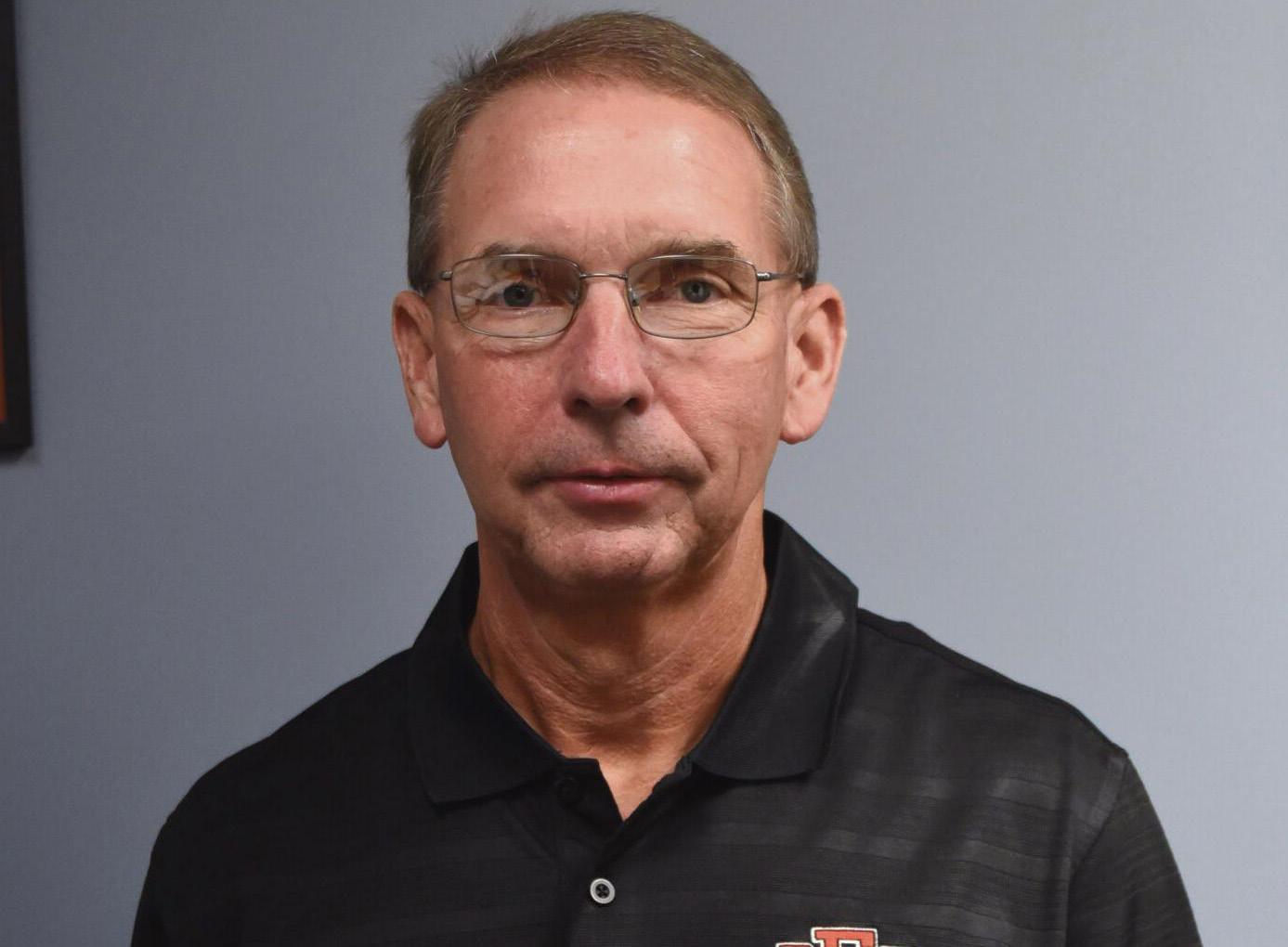
“It is different for us because it is also new and we are kind of learning as we go, reading the legislation put in place. It has been very easy because most of these folks like Southern Crop have worked in the industry in other states and they have helped to inform us and bring us along,” he said.
Southern Crop was founded in 2020 by a small group of investors, including Randy Mire, a pharmacist from Louisiana. Mire is also the CEO and founder of Capitol Wellness Solutions in Baton Rouge, the medical marijuana pharmacy awarded the first license to dispense in Louisiana.
Garcia said the company wants to continue partnering with the city.
“[The] focus will be on community education that encompasses program structure, how to become a patient, the value of a regulated market and product selection,” she said. “The core of all the marketing we do is education and a focus on destigmatizing the industry.”
Legalization of medical marijuana in Mississippi this year may have been a bold move, but it was carefully considered.
Marijuana growers and retailers now racing to get products planted, processed and sold, as well as doctors and patients eager to offer and try promising new treatments, must strictly adhere to directions dictated by the new law.
Here are the rules of the new road for patients, doctors, growers and distributors in Mississippi’s medical cannabis program.
Only those who really need it can get it “There is no doubt that there are individuals in our state who could do significantly better if they had access to medically prescribed doses of cannabis,” Gov. Tate Reeves wrote in a statement shared to Twitter the day the Mississippi Medical Cannabis Act passed the legislature in January 2022. But he quickly followed with a concern: “There are also those who really want a recreational marijuana program that could lead to more people smoking and less people working, with all of the societal and family ills that that brings.”
The Mississippi Legislature designated 23 medical conditions that qualify for marijuana treatment, including cancer, epilepsy, Parkinson’s disease, Huntington’s disease, muscular dystrophy, multiple sclerosis, PTSD, HIV/AIDS, Crohn’s disease, Sickle cell anemia and Alzheimer’s disease. It also allows use as treatment for chronic, debilitating pain. Conditions can be added to the list only by the Department of Health, not doctors.
But first, you need a card
Before purchase, patients must present an official medical cannabis card issued by the Mississippi Department of Health, good for a year. Here’s how get one:
1. Visit a physician, nurse practitioner or optometrist participating in the medical cannabis program for an in-person assessment and a follow-up within six months.
2. The medical professional will determine whether you have a qualifying medical condition and register your certification for medical cannabis use with the Mississippi Medical Cannabis Program. Only physicians can certify minors for use. For people ages 18-25, considered more susceptible to abuse or a drug, a doctor plus another practitioner must sign off on certification.
3. Within 60 days of medical certification, apply to the Medical Cannabis Program as a patient, using the Mississippi Department of Health website.
The law does not prevent any employer from firing or refusing to hire someone who is using medical cannabis or from having drug testing policies. Landlords are not required to allow medical cannabis production or use in rental property. The law does prevent people losing custodial or visitation rights with their children for use of medical cannabis, and the state says medical marijuana users shall not be denied the right to purchase or possess a firearm. But federal firearms purchasing regulations still prohibit marijuana use.
How much marijuana can patients buy?
Once qualified, patients may purchase up to 3.5 grams of cannabis flower or up to one gram of cannabis concentrate per day from licensed dispensaries. Patients will be limited to purchasing no more than three ounces, or 85 grams, of cannabis flower per month. Flowers are capped at 30% THC, the principal psychoactive component of cannabis, while concentrated products are capped at 60% THC. Dispensaries will be allowed to provide a wide variety of cannabis products including flower, vape cartridges and gummies to accommodate patients’ needs and personal preferences. This will especially benefit patients who live in apartments or other locales where smoking is not convenient or tolerated.
It is important to note, however, that smoking or vaping medical cannabis in any public place or inside a motor vehicle is prohibited. And there are no legal provisions for at-home cultivation.
Who can prescribe medical marijuana?
Physicians, physician’s assistants, nurse practitioners and optometrists are all qualified to certify patients for medical cannabis cards. However, they must register annually with the Mississippi Department of Health and complete eight hours of continuing education on the subject of medical cannabis for the first year and five hours every year after that.
Only physicians can certify minors for use. For people ages 18-25, considered more susceptible to abuse or a drug, a doctor plus another practitioner have to sign off on certification.
To issue patient certifications, physicians must complete an in-person assessment of the patient and perform a follow-up assessment every six months. Physicians may choose to impose shorter certified periods and restricted amounts of marijuana for patients.
Any cannabis that is sold in Mississippi must be grown in Mississippi — the sale of products produced outside of the state is strictly prohibited. This is to ensure that any economic activity surrounding the business positively impacts Mississippians and Mississippi workers. Additionally, Mississippi has a “seed to sale” tracking system to keep track of and to ensure the quality of any cannabis that is sold to patients and consumers in the state, something that wouldn’t be possible if the sale of out-of-state products was permitted.
Any product sold must first go through extensive testing. Under the Mississippi Medical Cannabis Act, testing facilities are independently licensed but registered with the Mississippi Department of Health. Their function is to ensure that any cannabis being grown and packaged for sale is safe and possesses the correct potency. Testing facilities are equipped to test for heavy
metals, microbial impurities, mycotoxins, residual pesticides, residual solvents and processing chemicals and other foreign materials. Without testing, you would risk impurities and biological hazards like mold finding their way into your system.
Zoning laws help keep your community as safe as
If you’re concerned that medical marijuana businesses opening in your area could pose a threat to your safety and well-being, legislators had those concerns in mind when drafting the Mississippi Medical Cannabis Act. Medical cannabis establishments cannot open within 1,000 feet, or slightly more than three football fields, away from a school, church or child-care facility, unless the cannabis distributor has a waiver from those establishments. Additionally, to avoid a high concentration of medical cannabis facilities in a single area, they cannot open within 1,500 feet of each other. Medical cannabis establishments can operate only in areas zoned as commercial or in areas otherwise used for commercial purposes. These restrictions are on top of any zoning restrictions, ordinances or variances that your county and municipality may enact in response to this new Mississippi program.
To purchase items at a dispensary, be prepared to pay in cash
Legal marijuana sales nationwide — for both medical and adult-use recreational purposes — are a cash-only business. This is due, in large part, to the fact that marijuana remains illegal federally. Credit and debit transactions are federally regulated so, as it stands, federally chartered banks can be penalized for providing services to cannabis-based businesses, however legitimate they may be within the state. For this reason, if you’re a Mississippi medical cannabis cardholder, show up to your dispensary of choice ready to pay for the green with the green.
Individuals who want to own, run or work for a medical cannabis establishment such as a dispensary must be subject to a criminal background check. No one who has been convicted of a disqualifying felony offense (convictions for a crime of violence, violations of state and federal controlled substance law, etc.) and no one under 21 years of age is allowed to enter or work for a medical cannabis establishment. And be aware, even if you are not shopping for cannabis products, dispensaries and medical cannabis establishments are required to keep track of who is coming into and leaving their facilities in the form of a visitor log.
You can purchase for yourself and no one else
With the exception of parents purchasing cannabis for children and caregivers who have clearance from the Mississippi Department of Health, medical marijuana purchases are not transferable. You purchase it for yourself and yourself only. Owners of cannabis establishments and medical marijuana cardholders who are found to be abusing their privileges by “transferring” or diverting cannabis to others risk having their licenses/medical marijuana cards revoked and also may face felony charges.
In moves that replicate almost directly citizen action that brought the state’s medical marijuana program to fruition, some Mississippians are challenging their municipalities and counties that have chosen to opt out of the state’s new medical marijuana program.
After consistently resisting legalizing cannabis for medical use beyond 2014’s “Harper Grace’s Law,” Mississippi legislators responded to constituent pressure and enacted measures in early 2022 that legalized cannabis for medical use after 74% of Mississippians voting had approved a medical marijuana ballot initiative in November 2020. (The legislature acted after the Mississippi Supreme Court struck down the ballot initiative process as a whole, including the 2020 vote on medical marijuana, on constitutional grounds in May 2021.)
The new medical marijuana legislation stipulates that counties can opt in or out of the program, and as of mid-September this year 17 counties and 85 municipalities had banned dispensing medical marijuana, according to the Department of Revenue
However, in some of those places, residents disagreed with those decisions and took action to reverse the local lawmakers’ actions.
On March 20, the board of supervisors in southwest Mississippi’s Lincoln County voted to completely opt out of the Mississippi medical cannabis program. This meant no cultivation, processing sale or distribution of medical cannabis and cannabis products would be legal.
That clearly was the opposite of Lincoln County voters’ intent when 54.22% of them cast ballots in favor of the legalization of medical cannabis during the statewide referendum.
In reaction to the supervisors’ ban, voters in Lincoln County created a “Stop the Opt” Facebook group and gathered enough signatures to force the issue onto a countywide ballot. In late August, voters opted back into the medical cannabis program. The special election, in which 2,593 ballots were cast, reversed the supervisors’ decision by a margin of 184 votes.
“We’re pleased today that there is a law that is consistent across the county,” Jason McDonald, a Stop the Opt organizer, told The Daily Leader in Brookhaven. “And that patients can get access (to medical marijuana) and we can all move forward with our lives.”
Also earlier this year, the board of supervisors in Lauderdale County chose to opt out of the medical marijuana program, while elected officials in Meridian, the county seat, decided to allow medical marijuana to be cultivated, processed and sold within the city limits.
The Meridian Star reported a petition with 1,500 signatures challenging the supervisors’ decision was filed and subsequently triggered an election on the issue Nov. 8.
Of the 14,918 votes cast, 58.4% were in favor of allowing the medical marijuana industry to operate in unincorporated areas of Lauderdale County, as well as in Meridian, while 41.6% were against the measure.
In Gluckstadt, a newly incorporated municipality north of Jackson in Madison County, voters attempted to reverse the city’s decision to opt out of the Mississippi Medical Cannabis Act. According to Municipal Clerk Lindsay Kellum, the petition was certified. It failed, however, due to a lack of signatures and other technical issues.
Supervisors in these counties, shaded green, have banned medical marijuana dispensaries.
Data from the Mississippi Department of Revenue
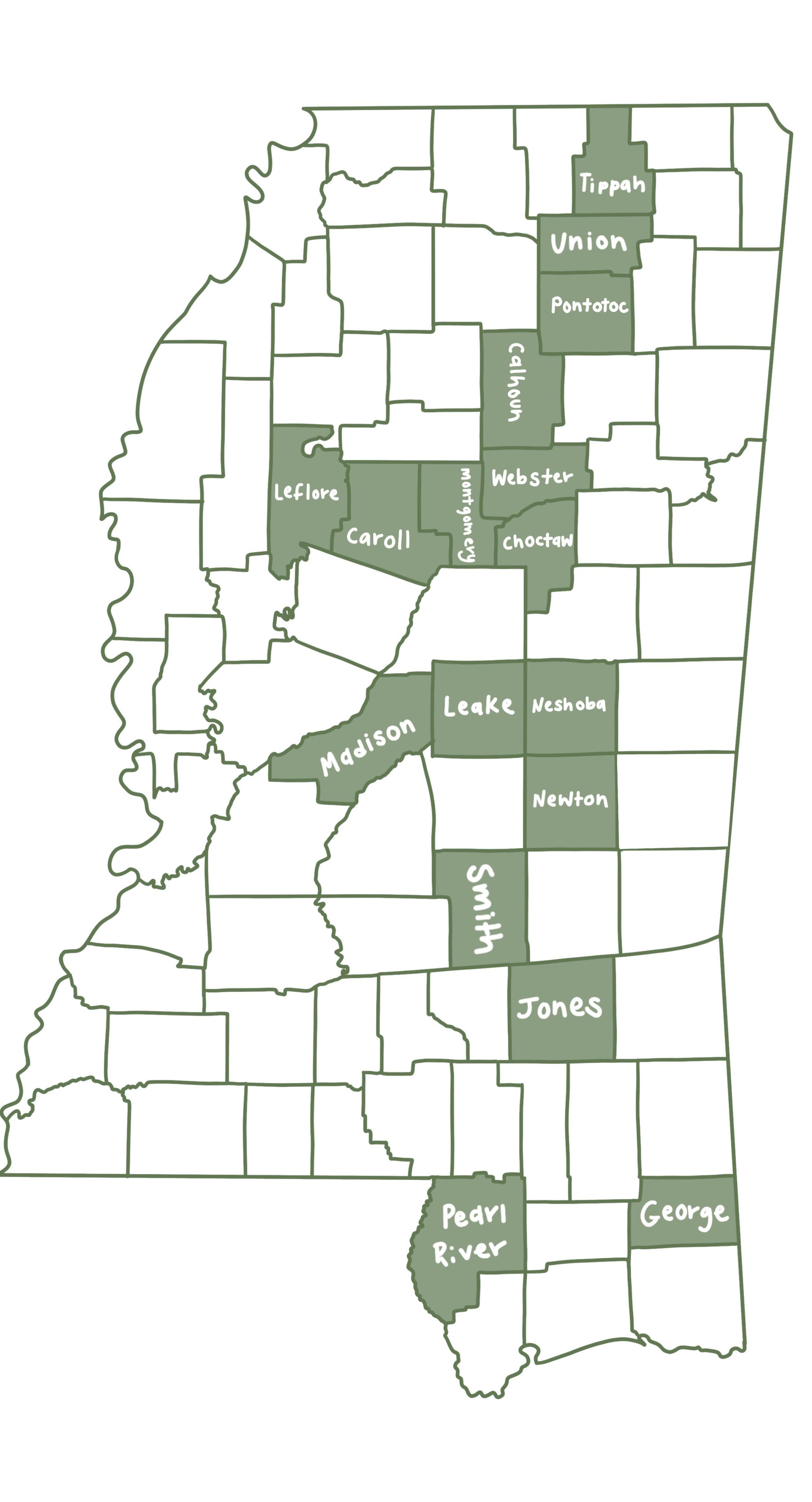
Medical marijuana is not only technically legal in Mississippi but plants also are being grown, products are being processed and patients are receiving prescriptions for its use. That is a remarkable turn of events in a state as culturally, economically and politically conservative as Mississippi.
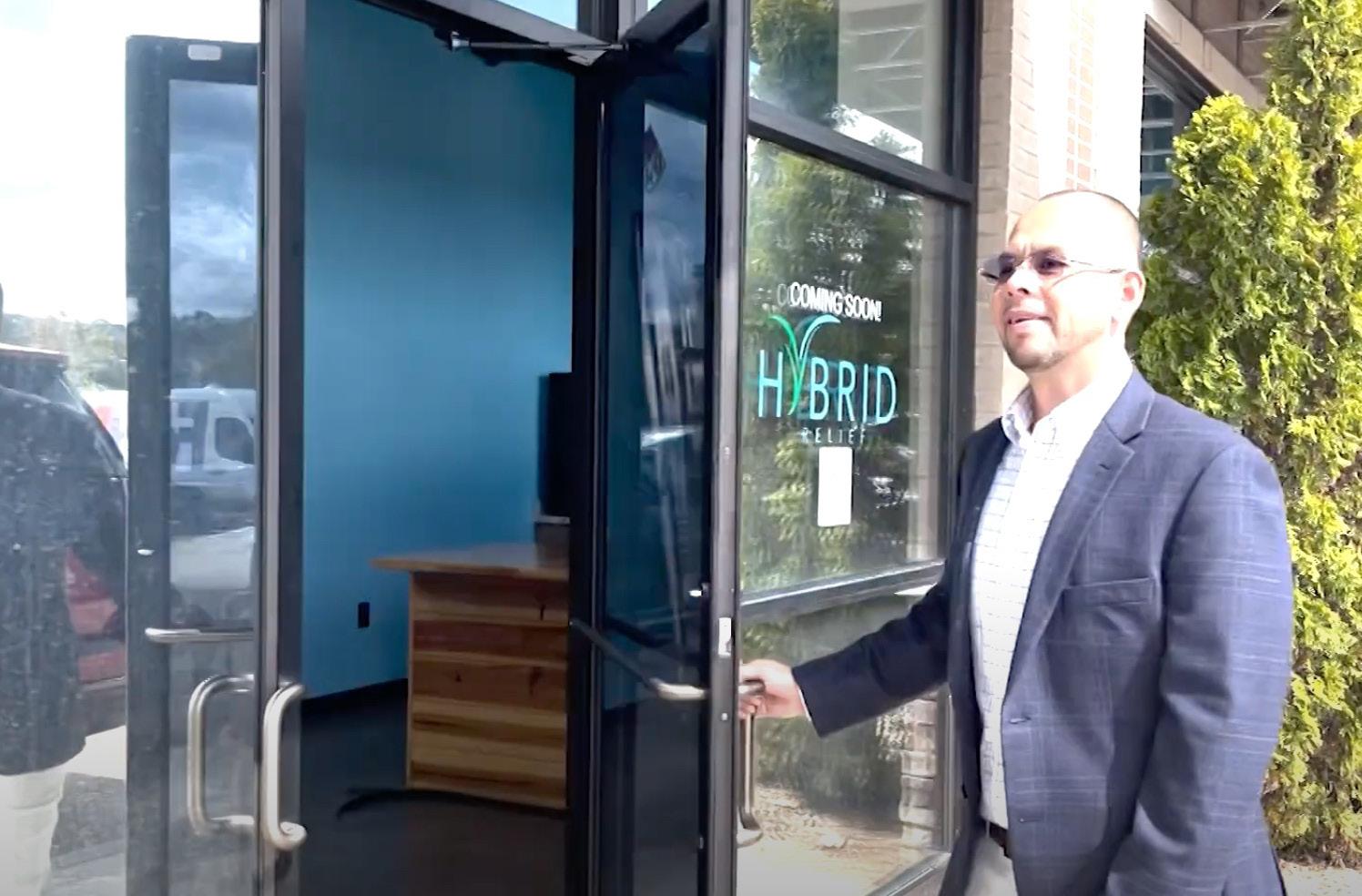



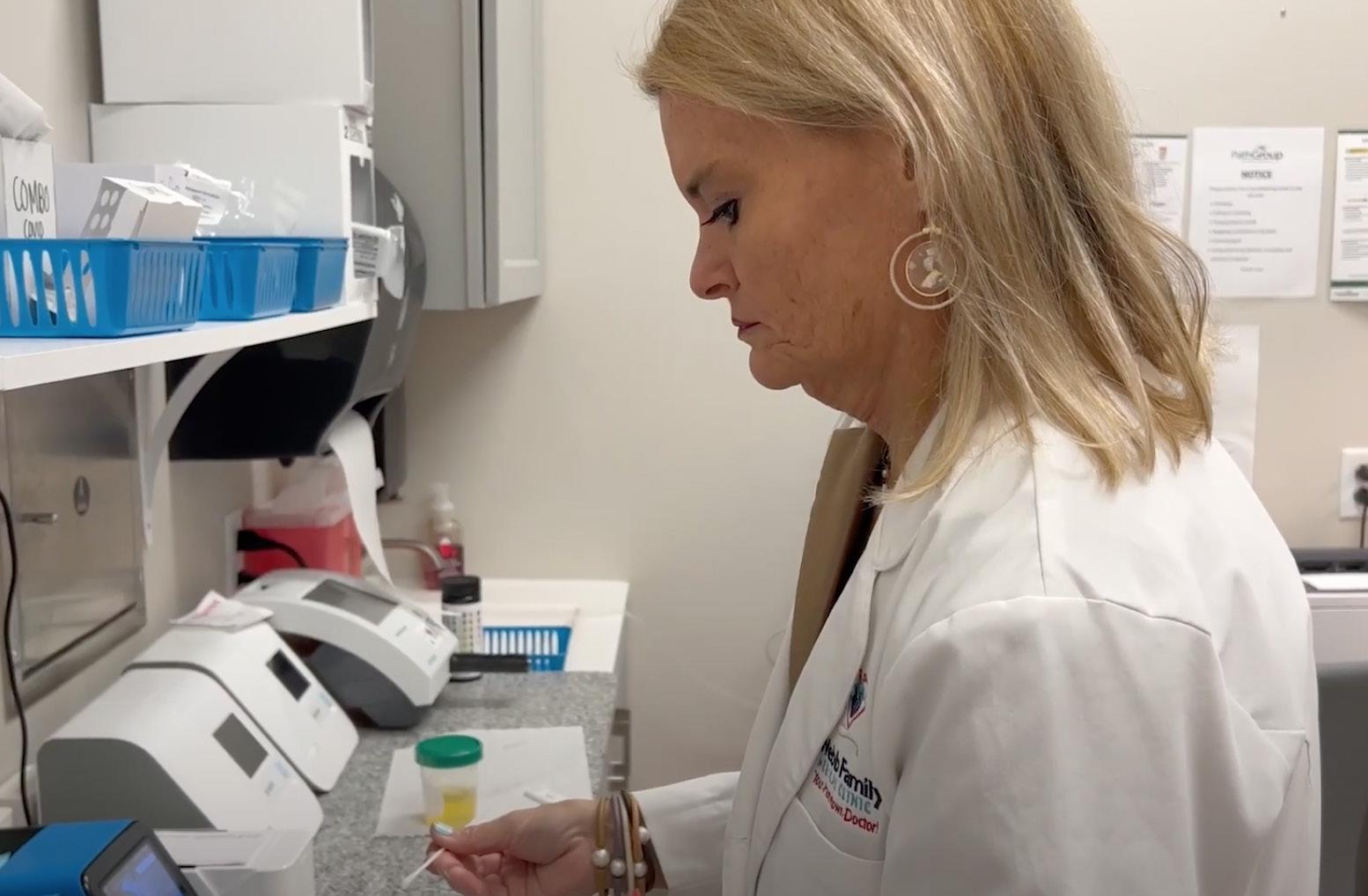

And it’s the kind of story journalists always are looking for: It impacts people, presents plenty of unanswered questions and offers lots of potential for positive and negative outcomes.
When Mississippi’s medical marijuana initiative was signed into law in February 2022, we knew we wanted students in the University of Mississippi School of Journalism and New Media, at the S. Gale Denley Student Media Center and the Sally McDonnell Barksdale Honors College to help tell that story for our community, to answer as many questions as possible and to bring to light both the opportunities and the challenges surrounding the cultivation, production, sale and use of medical marijuana in Mississippi.
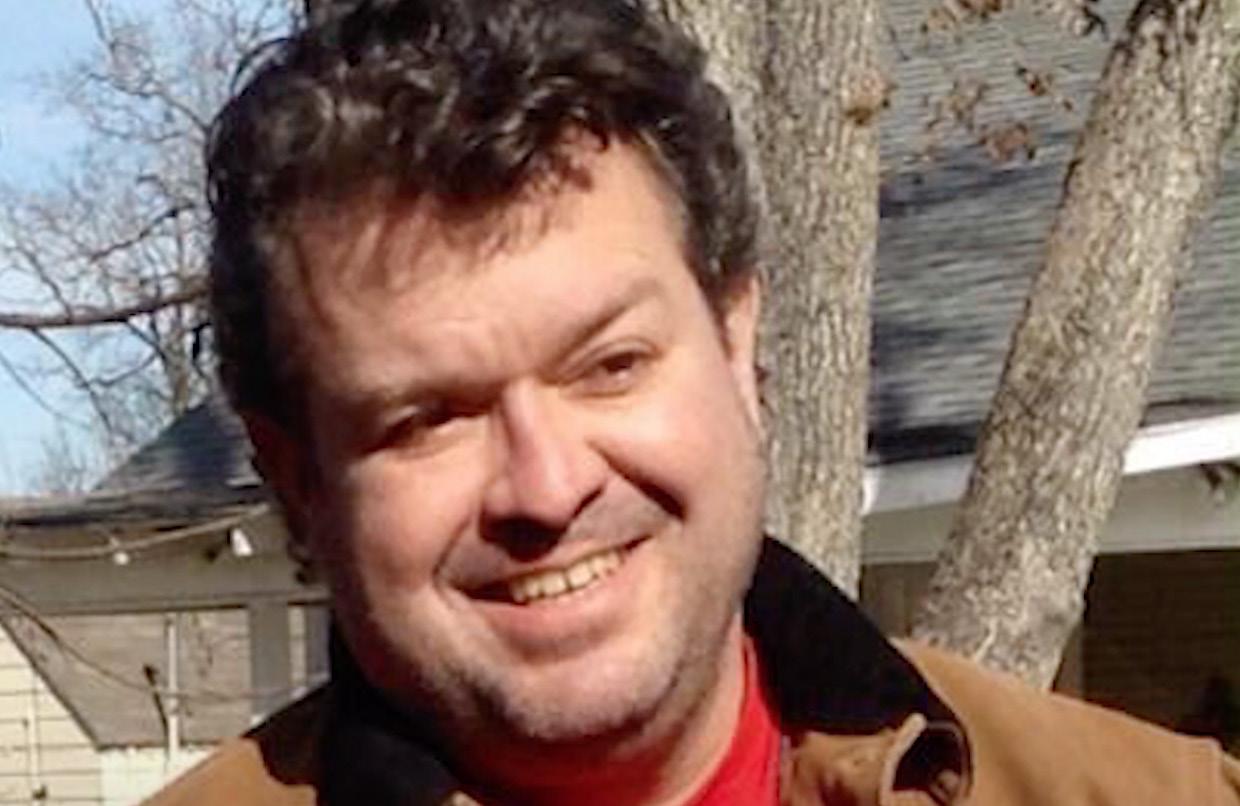


“This is a story with dozens and dozens of angles to pursue,” said Dr. Deb Wenger, associate dean and professor in the School of Journalism and New Media. “We want to explore the impact on patients and physicians, businesses and law enforcement, farmers and entrepreneurs and,
of course, college campuses.”
The project, “Marijuana: Good Medicine?”, is a year-long endeavor focused on investigating how Mississippi’s decision to become the 37th state to adopt a law allowing the use of medical cannabis will affect the lives of people locally and across the state. Thirteen students are involved in the reporting, including journalism graduate students under the direction of Dr. Iveta Imre.
“I am always looking for interesting projects that involve real-world reporting on important issues in the state,” said Imre. “This topic seemed to be a perfect opportunity for my students to work on video elements that helped tell the human side of the story.”
Two editors for the Daily Mississippian also have been integral to the success of this endeavor. Professor Dennis Moore, editorial director for the Student Media Center, immediately saw the potential for the reporting on this issue.
“With this project, student journalists, who typically concentrate on campus news, moved into the realm of professional journalists. They had the exceptional opportunity to cover one of the state’s biggest news stories in the same competitive arena as reporters and producers from Mississippi’s most respected newspaper,
television, radio and digital news organizations,” Moore said. “Rarely do students get such realworld experience.”
Six honors students accepted an invitation to join the reporting team and have added their perspectives from other disciplines including biology, legal studies and other majors. Professor Cynthia Joyce helped guide their storytelling.
“The Honors College students have approached this issue with an open-minded curiosity, which is the key to strong reporting and storytelling,” Joyce said. “That genuine interest, plus their critical thinking skills, have served them well in this project.”
As you read through the articles and watch the videos online, we hope you will come away with a better understanding of the new law and its impact on our state and its people, as well as an appreciation for the hard work of these talented student journalists.


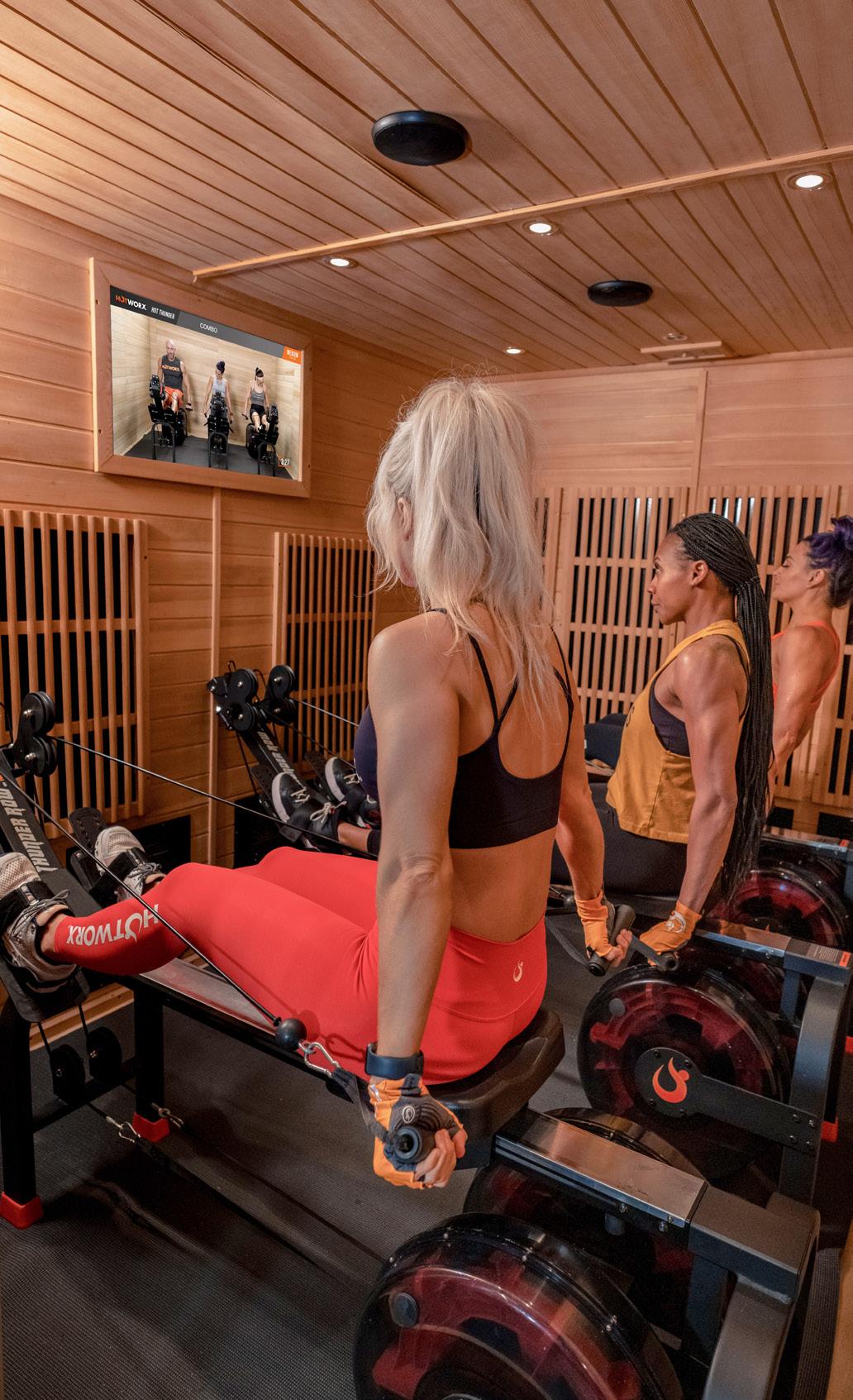




This year marked the return of one of Oxford’s most widely known and celebrated arts and culture events: the Double Decker Arts Festival.
The historic festival celebrated its 25th anniversary in late April, showcasing some of the southeast’s greatest artistic, musical and culinary work.

After a two-year hiatus due to COVID-19, vendors and patrons alike were eagerly anticipating the return of this Oxford cultural staple.
“Hosting Double Decker in 2022 felt like rolling out the welcome mat and saying, ‘Y’all come back,’” Oxford Mayor Robyn Tannehill said.
The event featured more than 100 art vendors and 20plus local food vendors, in addition to a number of musical acts that kept audiences coming back in droves.
These performers included
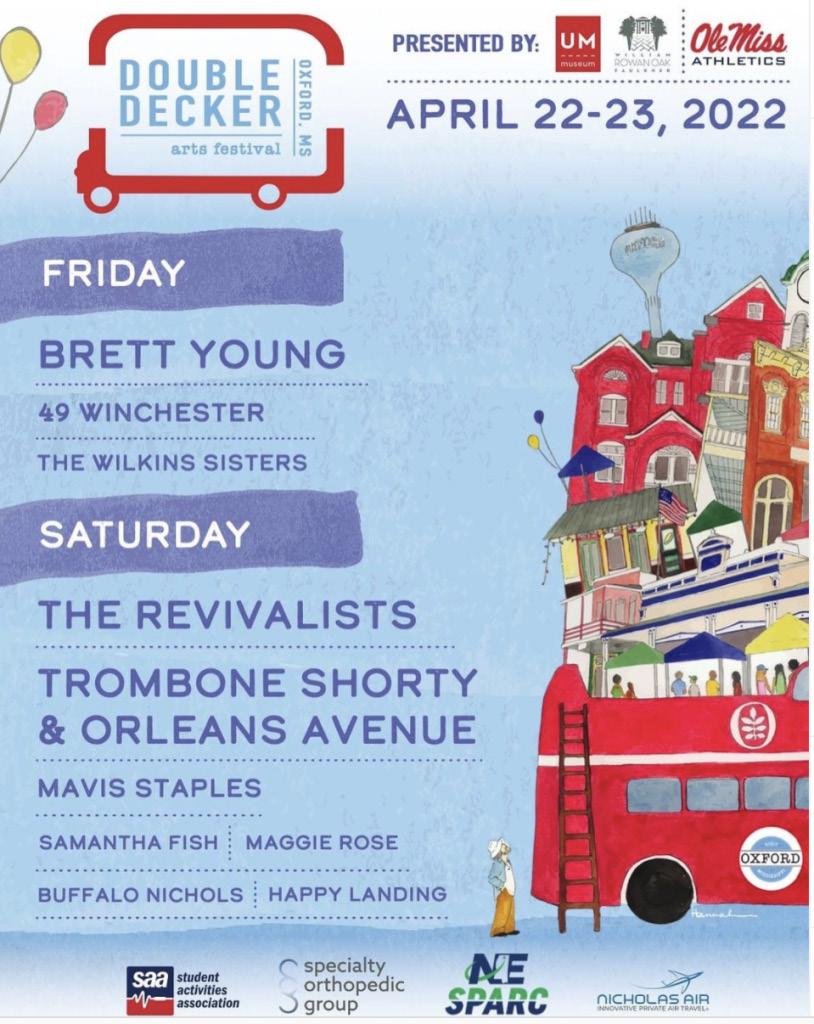
the likes of Brett Young, Trombone Shorty and Samantha Fish, all of whom excited attendees with their excitingly original voices.
In between listening to musical acts, students and families alike wandered the historic Square and took a look at the vast array of artworks, from companies such as Sabrina Ewing Art and Whitney Winkler Art.
Attendees also grabbed a bite to eat from the likes of Blind Pig Pub and Deli, Taylor Grocery and Walk-On’s.
The event saw a staggering attendance, with Visit Oxford estimating more than 100,000 people attending Double Decker’s return, far surpassing 2019’s estimated 70,000 attendees.
The impressive crowds included many returning visitors and Oxford natives, as well as newcomers who had yet to experience the festival due.

“Double Decker was truly one of the best experiences of college thus far,” sophomore film production major Kaitlyn Steinroder said. “I felt the spirit of Oxford come to life that weekend and I enjoyed seeing everyone together on the Square for art and music.
University of Mississippi cultivates some of the brightest minds that aspire to effect change
Just a positive all around.”
What began as an aspirational goal by thenOxford Tourism Council Director Tannehill has blossomed into one of Oxford’s most beloved communal traditions.
“Double Decker Arts
Festival came back bigger and better than ever in 2022,” Tannehill said. “Was it because we hadn’t been able to host one in two years? Was it because we were all so excited to see live music again? Can we ever top last year’s Double Decker? Yes, yes and YES!”
Whether 2023’s festival will reach the heights of 2022’s festival remains to be seen. Regardless, students and visitors alike eagerly await to see what Tannehill and the Double Decker planning
committee have in store.



“We are already excited about the 2023 Double Decker and we think everyone else will be, too,” Tannehill said. The 2023 Double Decker Arts Festival is set to take place April 28-29.
For more information on the 2022 Double Decker Arts Festival, as well as next year’s festival, please visit the Double Decker website and follow them on Facebook and Instagram @doubledeckerfestival.











This past year has been nothing short of a whirlwind for Ole Miss fans, students, players and staff. As 2022 comes to an end, we look back on the highlight reel of events that occurred throughout the year, with Ole Miss baseball taking the top spot.

Some may call it a miracle season, fate or even the greatest comeback of all time. However you describe it, be sure to include the well-earned title of “2022 College World Series National Champions.”
Ole Miss defied all the odds, shocked the baseball world and made history on June 26.. Through a season filled with ups and downs, the Rebels went from No. 1 in the nation to rockbottom in just a few short weeks.
Head coach Mike Bianco and the Rebels knew that this team was filled with talent, yet the losses piled up at the end of the regular season. Following a first-round loss in the SEC Tournament, the Rebels headed back to Oxford to anxiously await their possible, but unlikely, NCAA Tournament bid.
With every selection announced, they continued to lose hope. As the final pick in a field of 64 teams, someone on that NCAA selection committee thought that the Rebels deserved a chance.
At this moment, the morale of the team was completely turned around.
Ole Miss traveled to the University of Miami for the Coral Gables Regional, but a tropical storm descended on Coral Gables. The Rebels decided that it would take more than a few rain delays to keep them down.
Once the weather allowed, Ole Miss matched up against the same Arizona team that shot down the Rebels’ hopes of a trip to Omaha only a year prior, ultimately defeating the Wildcats 7-4 in Game 1.
The Rebels took on the Miami boys with the home field advantage for Game 2, coming out with a 2-1 win in a nailbiter.
Ole Miss and Arizona met once again in Game 3, but the Rebels were done playing around, demolishing the Wildcats 22-6.
Captain Tim Elko was the difference-maker in this game, going yard three times in one game for the first time in his career to rightfully earn the title
of regional MVP. Ole Miss was named regional champions, but their story was far from over.
Although the Rebels did not have to travel far for the super regional, they did have to defeat a very talented Southern Miss team, not once, but twice. The boys brought the heat in Hattiesburg, overcoming the Golden Eagles 10-0 in Game 1 and 5-0 in Game 2 to punch their ticket to the College World Series.
Bianco made it a point to tell his team throughout the postseason to “enjoy the ride,” and enjoy it they did. Ole Miss headed to Omaha with one goal in mind and never lost sight of that.
The Rebels matched up against Auburn for their first game on college baseball’s biggest stage, ultimately defeating the Tigers 5-1.

At this point, Ole Miss was in the final stretch to making their dreams a reality, but a huge battle lied ahead. The Rebels took on fellow SEC West team Arkansas in the semi-final series of the CWS, defeating the Razorbacks 13-5 in Game 1.

But the Razorbacks did not back down, taking Game 2 away from the Rebels 2-3. In a make-or-break game for both teams, the Rebels prevailed 2-0 in Game 3 to advance to the championship series.
Thousands of Ole Miss fans booked flights and hit the highway heading to Nebraska to cheer on the Rebels and experience this once-in-a-lifetime opportunity.
The Rebels faced off against an excellent Oklahoma team in the championship series with red and blue flooding the stadium around them.
Winning Game 1 was vital in this series, and the Rebels did it with ease, taking an early 4-0 lead after three innings. The Sooners cut it to a two-run lead in the bottom of the sixth. The Rebels answered in the best way possible, with back-to-back-to-back bombs by TJ McCants, Calvin Harris and Justin Bench that sent Rebel nation into a frenzy. Never trailing, Ole Miss defeated the Sooners 10-3 in an exciting first game.
Ole Miss needed to win only one more game to close the book of their fair-tale story. Just like the Rebels’ season, this championship game was a rollercoaster ride.
A two-run seventh inning gave the Sooners a 2-1 lead, but the Rebels decided to kick it into high gear in the bottom of the eighth.
TJ McCants came in clutch once again with a crucial base hit to begin the rally, with three more runs to follow. Ole Miss brought in closer Brandon Johnson to finish the job, and after a 1-2-3 inning, the Ole Miss Rebels were named the 2022 CWS National Champions for the first time in school history. Being the last team in, the Rebels played with a chip on their
shoulder while also “enjoying the ride” as Bianco instructed them to. Through true teamwork and unwavering belief, the Rebels turned their dreams to reality.
Rebel pitcher Dylan DeLucia rightfully was named MVP of the CWS, but freshman pitchers Hunter Elliott and Jack Dougherty deserve much recognition as well for their amazing performances
throughout the postseason. DeLucia was joined on the all-tournament team by Elko, Bench, Harris, Kevin Graham and Kemp Alderman. This team not only accomplished their overall goal, but also inspired many Rebel fans and people all around the country. The moral of this story: Don’t stop believing.
The landscape of college athletics is vastly different now than it was just three years ago. Before, it was against NCAA regulations to offer high school athletes money to persuade them to commit to a certain school. Now, it’s the new normal. The age of the “bagman” is long gone, and all focus has shifted onto three words: name, image and likeness.
The shift into this new age is still in the early stages with the majority of collegiate football programs still testing the waters. However, The Grove Collective, a privately run repository for NIL donations, has made a rather big splash. They recently surpassed the $10-million mark, extinguishing all claims that the fundraising wouldn’t be adequate to keep up with some of the so-called “blue-bloods” in the SEC.
This is big for multiple reasons. It gives Ole Miss the capital to keep star players like Quinshon Judkins. It is expected that many big programs will offer the outstanding running back
obscene amounts of money to buy him away from Ole Miss.
It also gives head coach Lane Kiffin a chance to compete with bigger schools that may have more to offer players NIL-wise. All of Kiffin’s players in 2021 inked an NIL deal with local company “Blue Delta Jeans,” where the players received customized jeans as well as financial compensation for promotion.


Earlier this year, amid a feud with Texas A&M coach Jimbo Fisher, Kiffin noted that college football is a “professional sport and these are professional players.” In that same press conference, he noted that he always has believed that players should be paid beyond scholarship money due to the work they put in, and he’s right.
NIL dollars also allow recipients who may not come from financially stable households the ability to take care of their families and give themselves a cushion should any unfortunate circumstances arise.









The Grove Collective itself has exploded onto the scene in just the last month and a half.
Earlier in the month, Executive Director Walker






Jones noted that the website crashed due to a high amount of traffic. The initial goal was to get to 2,000 members by December of this year, a goal that was reached in early November. A few days later, membership surpassed 3,000 and is currently at 4,422 members, with aspirations to have 5,000 members by the end of the year.
Organized into a tier system, the Grove Collective offers more benefits the more you donate. It ranges from a $21 monthly donation (“HYDR”) to an annual $50,000 donation (“The Grove”) with options to do a one-time payment or monthly billing.
The Grove Collective is open to corporate sponsors, too. One already signed is Realtree, run by Ole Miss alum Tyler Jordan, who has recently collaborated with Ole Miss athletics to design helmets for Ole Miss football.
As for the athletes that it supports, a plethora of Rebels across football, baseball and men’s and women’s basketball are beneficiaries. Stars like Jaxson Dart, Quinshon Judkins, Jacob Gonzalez and many more are supported by donations
through The Grove Collective. There’s no telling on just how big The Grove Collective will grow with more corporations rumored to sign on as sponsors. It allows supporters and boosters to pitch in more
than just as cheerleaders on Saturday’s and will be a crucial aspect in recruiting and retaining their stars. It may leave a sour taste in mouths, but NIL is here to stay at the University of Mississippi.
Tony the Landshark and Colonel Reb may have been official mascots for Ole Miss athletic teams in seasons past, but Juice, head coach Lane Kiffin’s furry best friend, is so popular among the Ole Miss faithful now that he has become an unofficial mascot for the football team. Fans are familiar with the Golden British Labrador Retriever that prances down the Walk of Champions at every home game. And “his” active presence on Twitter

provides comedic relief daily.
On April 26, Kiffin tweeted: “Thank you so much @wildrosekennels for ‘Juice’ @OleMissFB new mascot.”
Since that spring day, Juice has brought so much joy to the Oxford community and has undoubtedly become a celebrity in his own right. Juice wrote his first tweet in June and continues to post regularly.

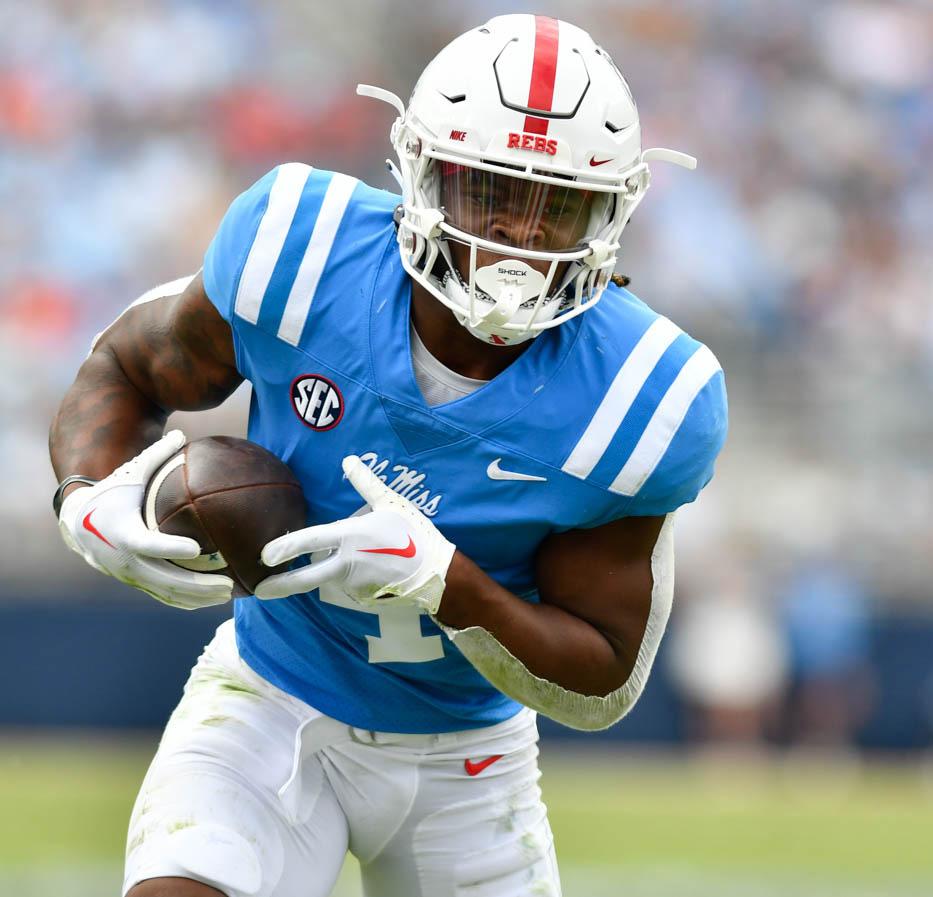
ESPN’s “College Gameday,” on campus for the Kentucky game in October, produced a special feature on Juice and had this to say about his addition to Ole Miss’ campus: “Juice has 25k Twitter followers … more
than any player on the team.”
When the team arrives on campus for a game, Juice gets off the bus first, alongside Kiffin’s son, Knox, and walks down the Walk of Champions ahead of the players to greet fans before kickoff. On the field during warm-ups, Juice makes the rounds to get players hyped for the game.
During the game, however, coaches do not want “the Juice loose,” so he has his own tent on the sideline where he sits while his dad is busy at work.
On Twitter, in the Grove or on the field, Juice brings laughter and entertainment to Ole Miss football fans.
Miss women’s basketball 13-game win streak last season
TThe Ole Miss women’s basketball team had a very successful 2021-2022 season in which they made the NCAA March Madness tournament. Many people know that the Lady Rebels made the tournament, but few know about the 13-game win streak that set them up for success early in the season.
Ole Miss opened its season against Belmont University, and the Rebels fell 62-50 to the Lady Bruins. With this loss, the season looked grim as a tough non-conference schedule loomed over head coach Yolett McPhee-McCuin and her players. However, Ole Miss did not succumb to the disappointment of their season opener.
The Rebels would go on to win their next 13 games by an average margin of 22.5 points. During this stretch, their opponents never surpassed more than 70 points
Ole
in a game. Ole Miss was firing on all cylinders, on offense and defense, and McPhee-McCuin had her team playing some of the best basketball in the country.
This win streak continued during an inopportune COVID-19 outbreak which stopped the Rebels from playing for 15 days between a matchup with No. 18 South Florida and the University of Florida. Despite this roadblock, Ole Miss hunkered down and grinded out a 19-point win against Florida to raise their win streak to a season-high 13.
The Lady Rebels played in two invitational tournaments to begin the season: the Raising the B.A.R. Invitational powered by Cal and the West Palm Beach Invitational. It is always an honor to be invited to these invitationals, but it is even better when a team is able to weather the storm of competition and win the entire tournament.
McPhee-McCuin’s squad managed to win both of these tournamentsinconvincingfashion.
Ole Miss strung together wins against quality opponents including Cincinnati, Texas Tech, San Diego State, South Florida and Florida.
With a 13-game win streak on its side, Ole Miss had all the confidence in the world entering SEC play. The Rebels finished conference play 106, a massive improvement on the 4-10 conference record from the previous year.
Ole Miss would ride into March Madness as a seven-seed but fell to the South Dakota Coyotes 75-61. However, Ole Miss fans will not look at this season and remember the loss that ended it but rather the incredible showing of resilience and teamwork that led to a beautiful 13-game win streak.
It will be interesting to see whether the current Ole Miss Rebels can replicate or even surpass the 2021-2022 team’s historic win streak, but one thing is certain: The Ole Miss women’s basketball program is trending upward.
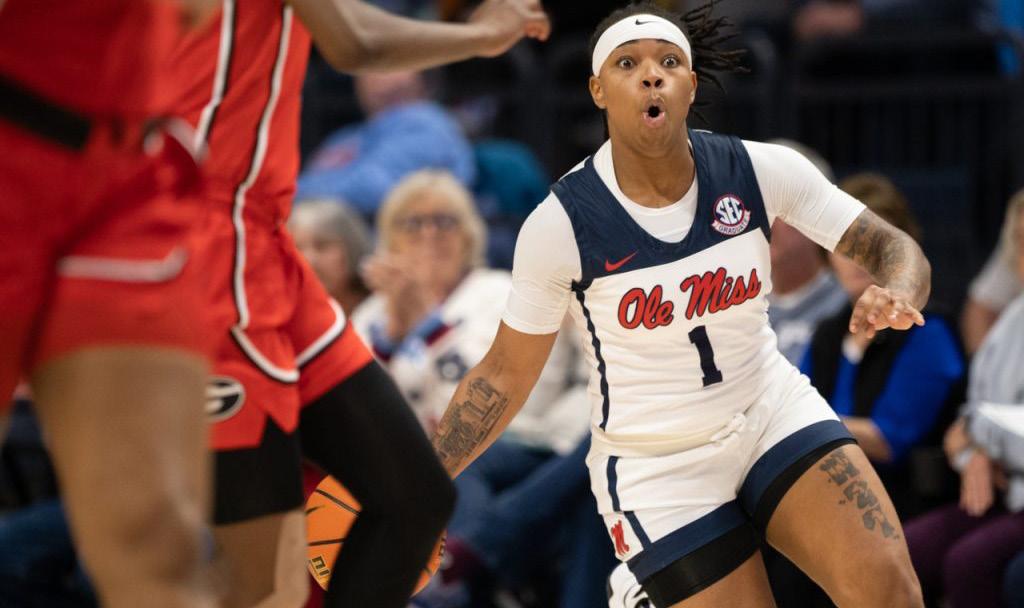
ACROSS
47-



41- SUDOKU© Puzzles by KrazyDad HOW TO PLAY Complete the grid so that every row, column and 3x3 box contains the numbers 1 through 9 with no repeats. DIFFICULTY LEVEL


Hew;
43-
26- Tin Pan Alley org.; 27- Swiftly; 28- Governed; 29- The Hilton, e.g.; 30- Golf clubs; 31- Condescend; 32- Dazzling display; 34- Largest country in Africa; 37- Aware of; 38- Back-and-forth; 40- Not new; EASY
51- Offhand; 55- Big swallow; 56- Summarize; 58- Criticize with scathing severity; 59- Change for a five; 60- Make ___ of (write down); 61- Small rivulet; 62- Network of nerves; 63- High building; 64- Ancient theaters; DOWN 1- Move off hastily; 2- “Rule Britannia” composer; 3- Doesn’t keep; 4- Freezing rain squall; 5- Brings up; 6- Arm bones; 7- Ceremony; 8- Summer slaker; 9- Conducted; 10- Beautifully imaginative; 11- Competent; 12- Rich soil; 13- Old cloth measures; 21- Seemingly forever; 22- Arouse; 24- Hermit; 25- “A Jug of Wine...” poet; Crossword puzzle provided by BestCrosswords.com (www.bestcrosswords.com). Used with permission.
46-

What makes a great football team? Is it a solid, bend-butdon’t break defense? Maybe it’s a wide-open, full-throttle offense that keeps the Tigers and the Razorbacks of the world up at night guessing, or even a star quarterback that keeps everyone (including his own coach) guessing at his next miraculous escape and throw.
Could the “secret sauce” of a great team really boil down to a simple coaching issue, limiting any worthy squad to the ceiling that its coach provides? It’s hard to give a hard and fast solution to that question, but if any of the answers above may suffice, the 2021-2022 Ole Miss Rebels were absolutely such a team.
With the first double digit win total since 2015, head coach Lane Kiffin revitalized a once proud program through his freewheeling play designs, his unique persona and approach and his close relationship with former Heisman hopeful Matt Corral.
How did a team with a 5-5 record the year before, and a 4-8 record the season before that, become such a powerhouse in the SEC West? How did the Rebels, long an afterthought in big-time college football, become an underdog worth celebrating?
The season began in Georgia, of all places, as the Rebels began the college football season in the Chick-fil-A Kickoff game against the Louisville Cardinals.
After a convincing 43-24 victory, Ole Miss went on a threegame winning streak, predictably walloping Austin Peay and Tulane with margins of victory of 37 and 41 points, respectively. After dominating the Green Wave during one of the rainiest days in recent Vaught-Hemingway
memory, Ole Miss, boasting a ranking of 12 in the AP poll, sojourned to Tuscaloosa to face the top-ranked Alabama squad.
After a humbling defeat at Bryant-Denny, the Rebels launched another winning streak, beginning with an instant classic against Arkansas. In a dogfight between two talented signal callers, the Rebels and Razorbacks dueled in what many called the game of the year.
Tied by the end of the third quarter at 31 apiece, standout running back and current Jacksonville Jaguar Snoop Conner broke off a 34-yard run for a score. Two minutes later, Arkansas answered with a score of their own. Another two minutes passed, and Conner again hit paydirt in the Arkansas end zone. North Mississippi’s own KJ Jefferson, the quarterback for Arkansas, answered Conner’s challenge with a rushing touchdown of his own.
With just over a minute to go in the game, Corral uncorked a rainbow pass to Braylon Sanders, who caught it for a 68-yard touchdown, capping a two-play, 15-second drive for the Rebels. After an answering touchdown by the Razorbacks to end regulation, head coach Sam Pittman elected to go for a two-point conversion, failing in the attempt and sealing victory for Oxford’s finest, 52-51.
Buoyed by the victory, and now ranked 13th in the nation, Ole Miss traveled to Tennessee, shutting down the Volunteers, who were less than respectful following the loss, thanks to their history with Kiffin.
After golf balls and mustard bottles showered the Rebels in Neyland Stadium, Kiffin and Corral returned to Lafayette County to face the Tigers of LSU, long a thorn in the side of any Ole Miss coach.
After handling LSU 31-17, the Rebels faced another pack
of Tigers, this time in Auburn. This loss, while painful, would be the last of the regular season for Kiffin and company.
Buoyed by chants of “LaneTrain” and “Matty Ice”, the Rebels hosted Liberty, coached at the time by disgraced former Ole Miss head coach Hugh Freeze. Though the Flames boasted star quarterback Malik Willis, they were no match for a reinvigorated Corral, who threw for 324 yards in the affair.
The Rebels, by then again ranked 12th, took on Texas A&M, then holding the 11th spot in the poll, and rose to the challenge.
Jerrion Ealy impressed with 152 yards rushing, and Corral continued to dazzle with 247 yards through the air in a solid, balanced attack.
After handling a woefully unprepared Vanderbilt team, it was time for the apex of all seasons Mississippi: the Egg Bowl.
Fans of Ole Miss often assume that the mid-state showdown against Mississippi State is a given victory, failing to appreciate that a team like State, often in the middle to back of the pack in the SEC West, prepares all year for that single game, and are thus indescribably dangerous. Despite being outgunned in total yardage, 388-420, and having to weather an interception by Corral, Ole Miss pulled out a victory, 31-21.
Although the season ended in a demoralizing loss at the hands of the Baylor Bears in the Sugar Bowl, the efforts of this squad should not be forgotten.

Despite being projected as a top quarterback taken in the draft, Corral elected to stick it out with his team, defying expectations and playing in a game that would ultimately net him a costly ankle injury (which likely contributed to his diminished draft stock three months later). Corral ended his final season as a Rebel with 3,349 yards,

with 614 more on the ground.
Ealy and Conner impressed as a formidable rushing duo with 768 and 647 yards, respectively. Dontario Drummond who ended the year with 1,028 yards receiving.
The defense, not to be overshadowed, had several stars of their own. A.J. Finley, a continual contributor into this past season as well, had three picks on the year, which complimented a formidable defensive front. Sam Williams led the team with 12.5 sacks, dovetailing with the efforts of Chance Campbell and Cedric Johnson, who both had at least six apiece.





Although the seasons will stretch on, and new stars will enter and impress, those that had the privilege of watching this Rebel team must not forget the moments and
intrigue that made a season, at times seemingly destined for mediocrity, so striking. For the team, the most important game is the next, and the best measure of greatness is always yet to come. For the fans, however, looking forward is only half the fun. The other half will always be remembering.

Remembering the gunslingers and highsteppers, the blitzes and the underdogs, and the mustard bottles and the tailgates. The question posed at the beginning of this article asked what it is that makes a great football team. Maybe it was defense, maybe offense or it very well could have been all up to the coach, but the answer, after reflection, almost has to be the simplest of all: True greatness has to lie in the memories.















 OWEN PUSTELL
OWEN PUSTELL

After a historically good 2021-22 season, Ole Miss heard its name called a lot on draft weekend as six players
were selected to perform at the next level. For Ole Miss, that number ties the most taken in a class over the past 50 years. The Rebels tied for the seventhmost players from any college and matched the amount selected from perennial powerhouse Ohio State.



Sam Williams, EDGE, Dallas Cowboys (Round 2, Pick 56)

Despite off the field issues, Williams had a very impressive career at Ole Miss. Williams never totaled less than eight sacks in each of his three years in Oxford and set the single season record in 2021 by registering an impressive 12.5 sacks. Though Williams was drafted into a loaded EDGE room, he has shown out in his limited snaps by recording three sacks and being consistently disruptive. Though players like Aidan Hutchinson and Kayvon Thibodeaux are getting a lot of attention, Williams has quietly been one of the best rookie pass rushers on a per-snap basis.


Matt Corral, QB, Carolina Panthers (Round 3, Pick 94)
Despite having an incredible career for the Ole Miss Rebels, Corral fell into the third round of the draft. Unfortunately, Corral suffered a season-ending injury in the preseason and has not played thus far, though given the recent performances of Baker


Mayfield, PJ Walker and Sam Darnold, Corral certainly would have seen the field. Next season, Corral could very well be in line to take the reins in Carolina, though spending a first-round selection on a quarterback could put Corral on the trade block before he ever takes a snap in Charlotte.

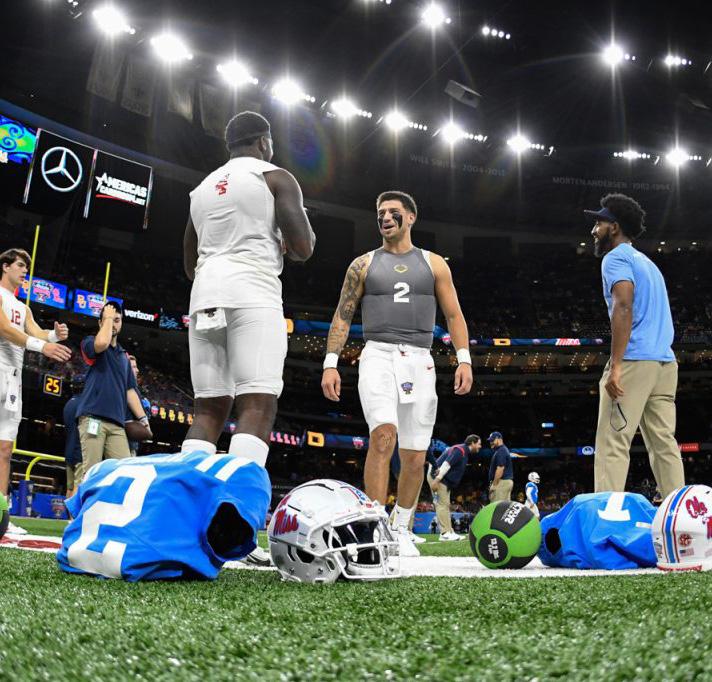
Snoop Conner, RB, Jacksonville Jaguars (Round 5, Pick 154)
Conner was the first of four late-round selections and has been slowly working his way onto the field. Conner started the season as RB4 on the depth chart, but after James Robinson was traded and Travis Etienne exited the team’s Week 12 matchup with the Ravens, Conner saw the field. Conner got three carries for 11 yards in a comeback upset victory, marking his first contribution to the team. Conner is now listed on the team’s depth chart as being RB2 behind Travis Etienne and ahead of JaMycal Hasty, though Hasty does see snaps on third downs when Etienne checks out.

Campbell, LB, Tennessee Titans
(Round 6, Pick 219)
Campbell was placed on injured reserve just before the season began and has not played in the regular season, but Campbell recorded eight tackles across three preseason games.
Mark Robinson, LB, Pittsburgh Steelers (Round 7, Pick 225)
Though Robinson is on the Steelers’ active roster, he has yet to record a stat. He played his first and only five snaps of the season on special teams against the Tampa Bay Buccaneers. If the Steelers have a linebacker go down with injury, expect Robinson to be a regular in the starting lineup.
Deane Leonard, DB, Los Angeles Chargers (Round 7, Pick 236)
Leonard has been consistently active for the Chargers this year, appearing in all 11 games this season as a special teamer. Though he has yet to register a snap on defense, Leonard has made three tackles and is a core part of the Chargers punt and kick coverage units.




Mississippi’s year was as unpredictable as its weather.
A lot has happened this year, and I mean… A LOT both on and off the campus.

Starting with on-campus, The University of Mississippi’s total enrollment is up 5.1% or 1,111 students from 2021. Additionally, the retention rate of first-year students hit an all-time high of 89.3%. This semester we’ve welcomed a historically large freshman class.
A campus population increase means that there is NOWHERE to park near your 9:00 am class. Just to add more salt, the commuter parking permits were split this year, and if you weren’t checking your email over the summer, you got stuck with commuter red… if you know, you know. The only available parking spots have been strategically (and inconveniently) placed the furthest away from the most walkable campus in the SEC. All things come to a balance, I suppose.
Some professors and staff have rumbled that building new parking lots and garages yields
a neutral return on investment, and it’s not that important. I disagree, the issue is pressing. No student living off-campus seems to be satisfied with the available options. Let this be a proposal to demolish Kinkannon hall and utilize that space for a generic parking garage.

This parking issue becomes insurmountable on game day weekend, especially when you take into account the Rebels being ranked as high as No. 8 in the AP poll with Quinshon Judkins looking like a Heisman candidate, but we know how that ended.
LIBBY FLANAGAN / THE DAILY MISSISSIPPIAN
In many ways, Mississippi football fans had a lot to appreciate in 2022. We try not to mention the Sugar Bowl. Having two bowl-eligible FBS teams is fairly impressive and means there was digestible football on TV every Saturday. Which is cool, I guess. Don’t get me wrong, there have been much darker times for Mississippi Football, like the 2005 season where the six Division 1 programs in the state finished a combined 27-40. We did witness undeniable gridiron greatness thanks to Jackson State and Deion
Sanders. The Tigers are looking to close out their first undefeated season ever this Saturday against Southern University in the SWAC championship. That game will be played in Jackson where the team experienced a drastic preseason issue: the water crisis. That lasted for about seven weeks, is still lingering and remains a threat to the capital city’s infrastructure. It’s important to note that concerns over water quality have clouded Jackson for years now. How state and local officials overhaul Jackson’s water system is something to pay close attention to in 2023.
Just to add the cherry on top to Mississippi’s year, we have to mention none other than the largest case of public fraud in Mississippi history. In case you missed it, 77 million dollars intended for the Temporary Assistance for Needy Families were mishandled and allegedly used to fund and construct Brett Farve’s vacation-villahideaway in Punta Cana. Wait…*Checks notes* that’s my mistake. Surprisingly, they were used for even less responsible endeavors: a volleyball stadium.
It’s a shame. I wouldn’t say Brett Farve was necessarily revered in Mississippi. He was a well-liked guy who drew red flags and character concerns over his multi-decade NFL
career, like the 2010 sexual harrasment allegations. None as consequential as these allegations, though. Even if he’s proven innocent in court, his PR team will go through the equivalent of hell to revive his public image.
In contrast to the Coalition for Kincannon Demolition (CKD) introduced earlier, the Students for the Introduction of a Classless Kalendar Ahead of Nonexcusable Difficult-Tests In the Remaining Educational Designation (SICKANDTIRED) is a serious on-campus group dedicated to securing a deadweak period for students. Established in late 2022, they have worked tirelessly to relieve stress on students late in the semester. Seriously though, a dead week would be nice. Yes, we have a full thanksgiving break. The two can coexist. All in all, Mississippi is as unpredictable as its moody weather. Let’s hope 2023 has some incredibly high highs, and some tolerable, predictable lows.

Jaylin Jones is a senior real estate major from Lucedale, Miss, and Justice Rose is the opinion editor. He is a sophomore journalism major from Madison, Miss. is a sophomore journalism major from Madison, Miss.
